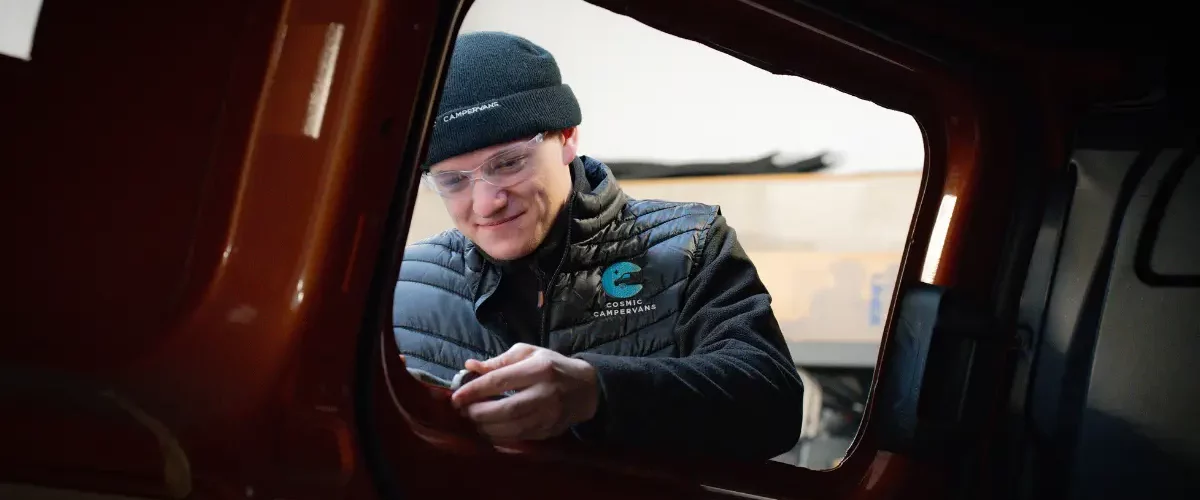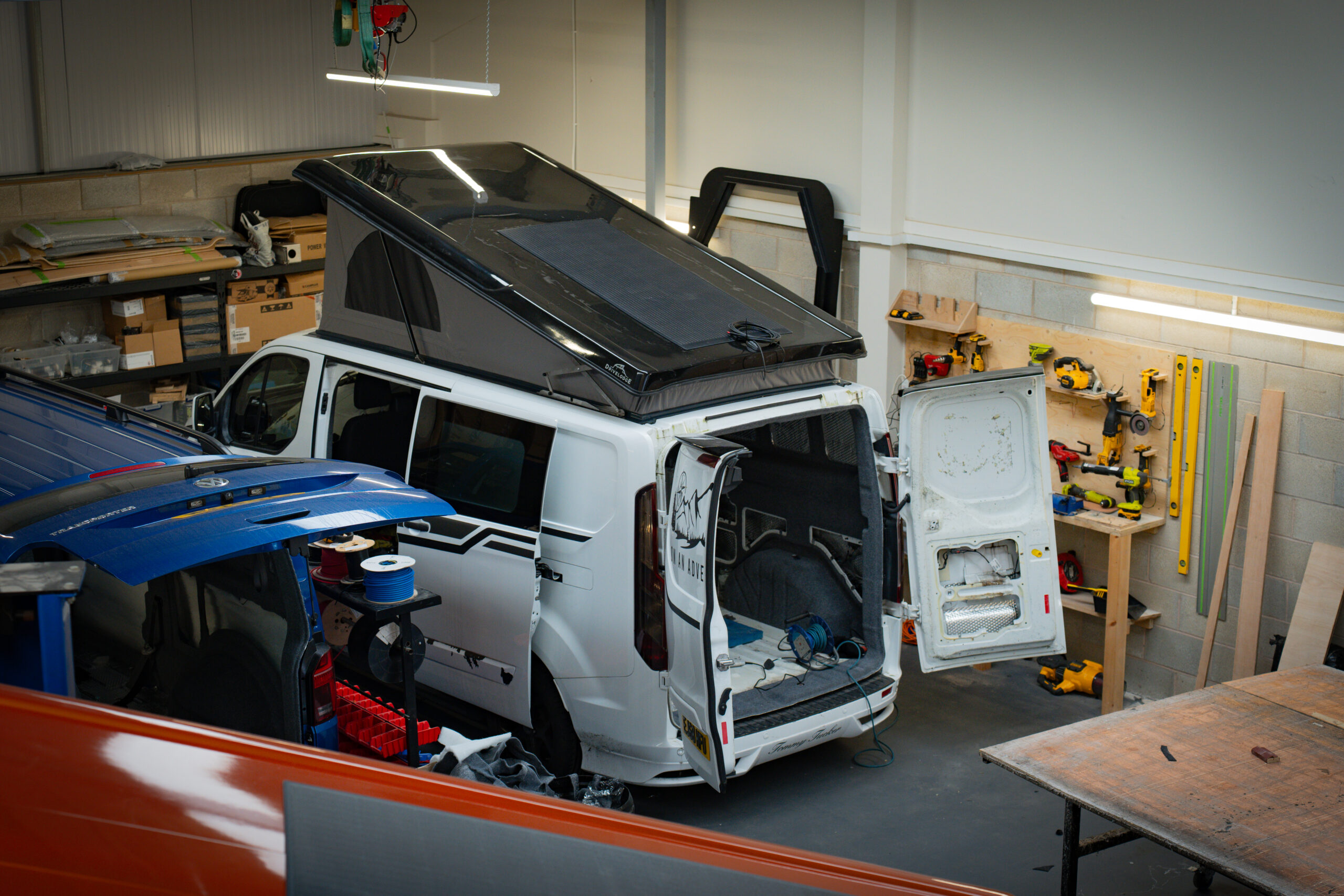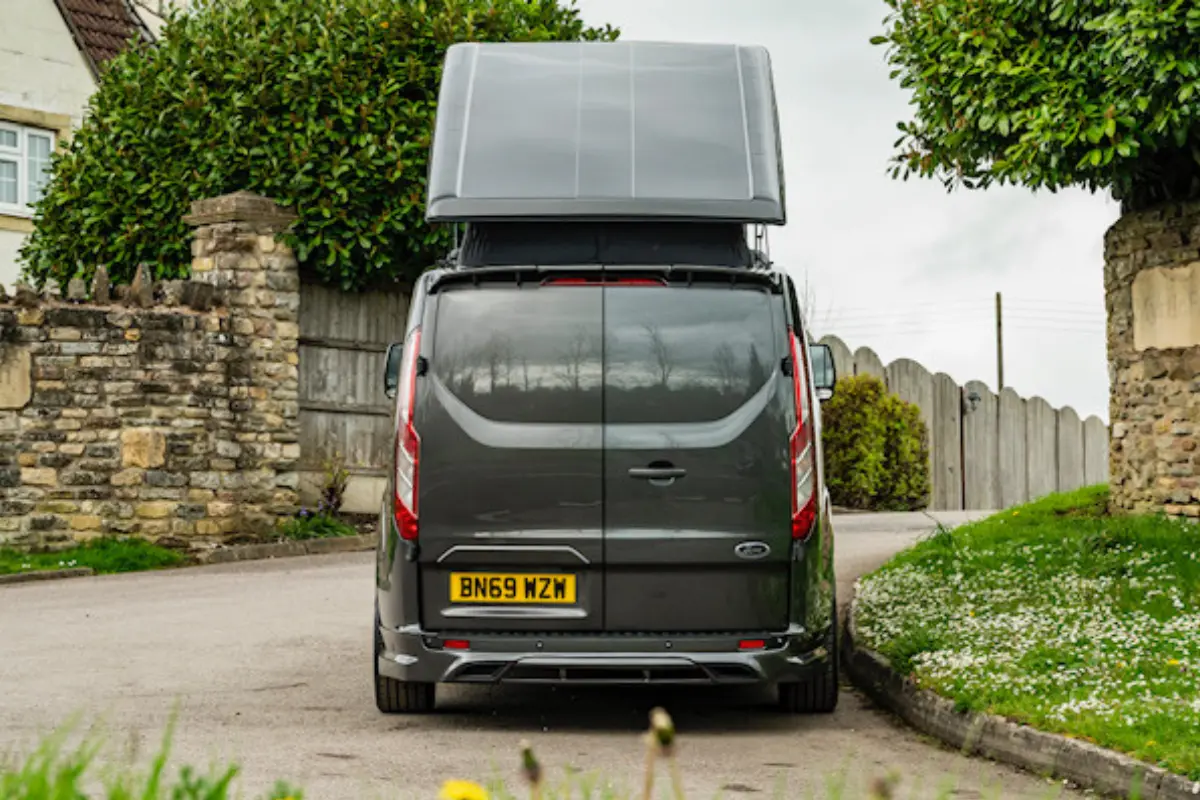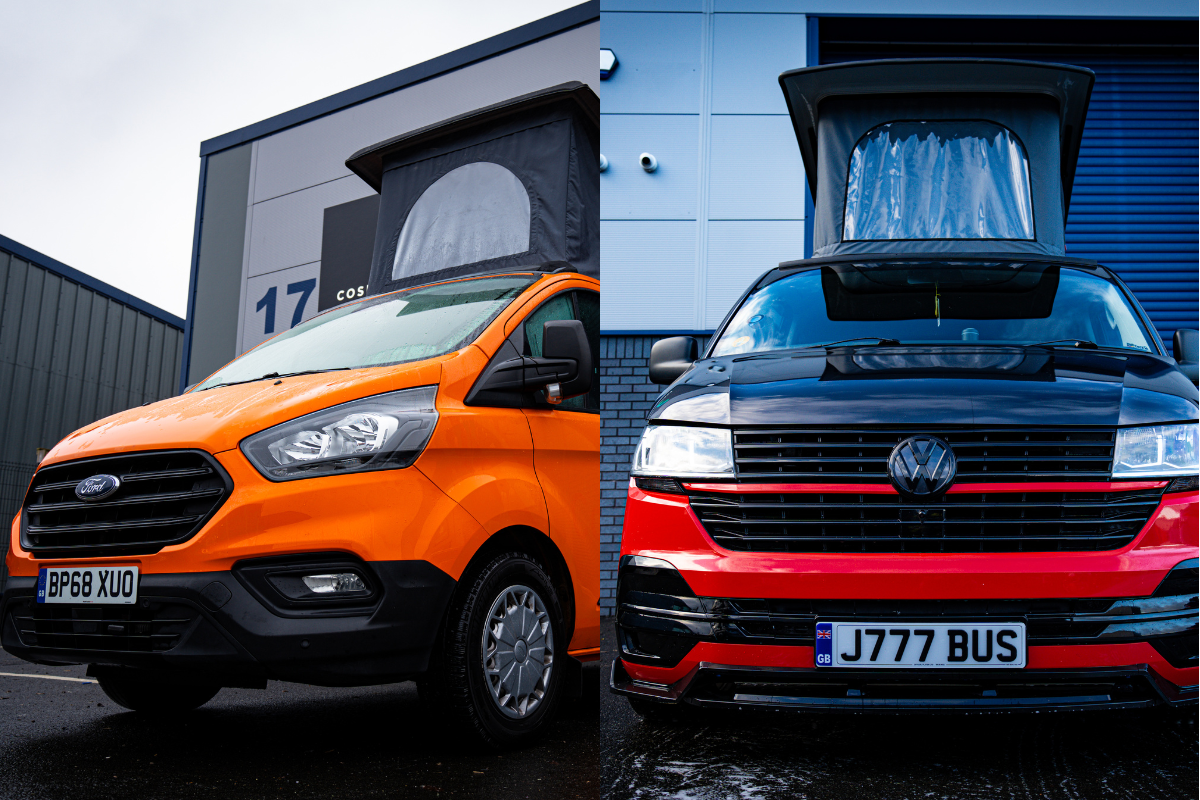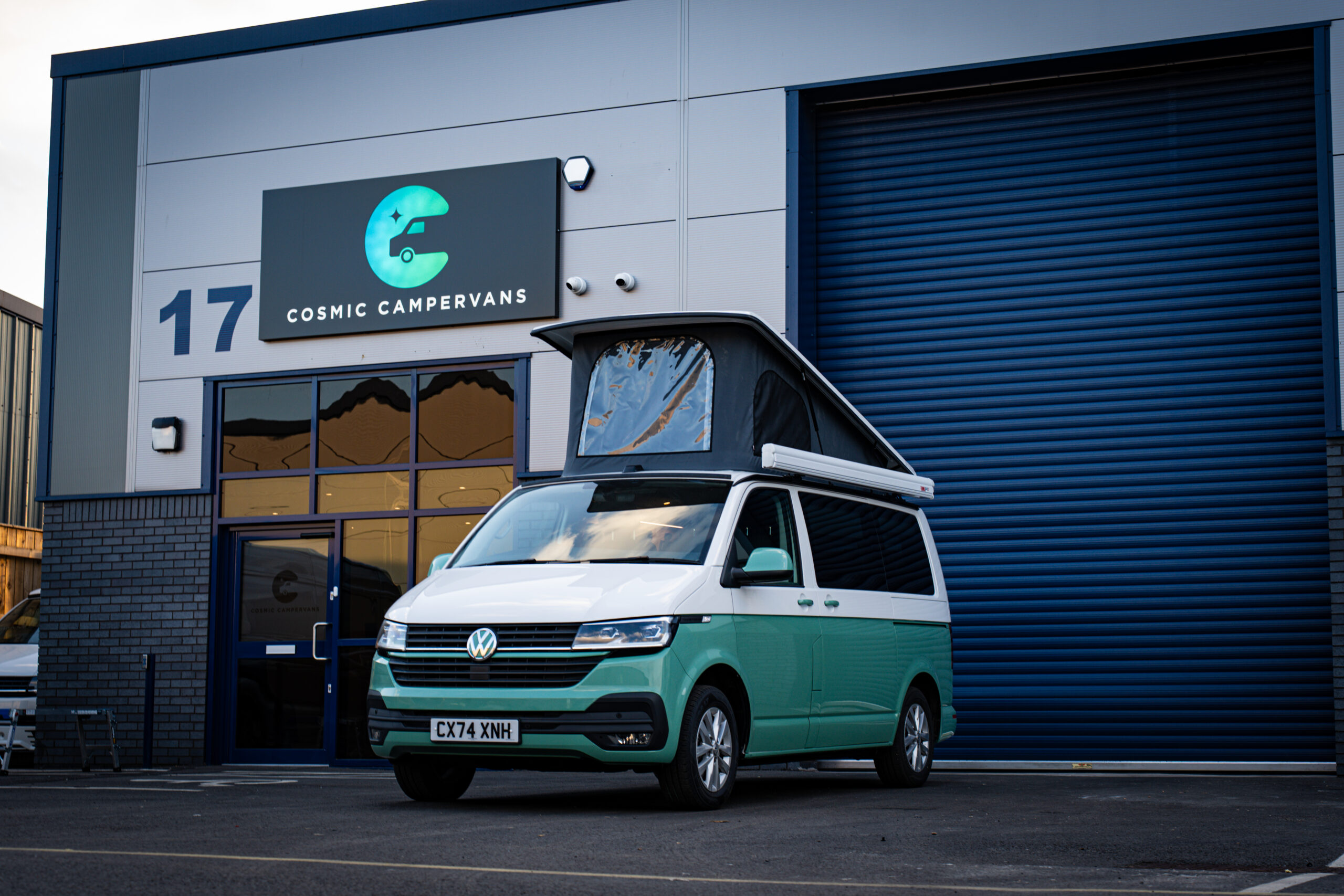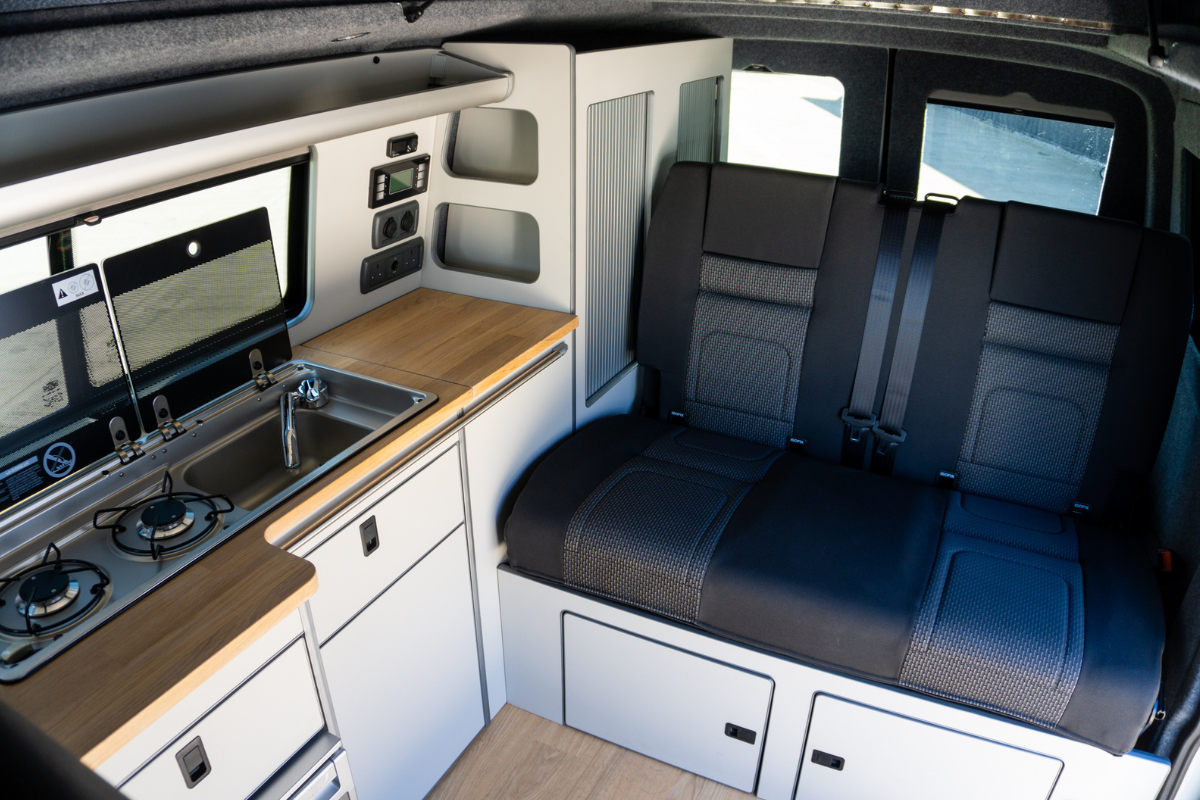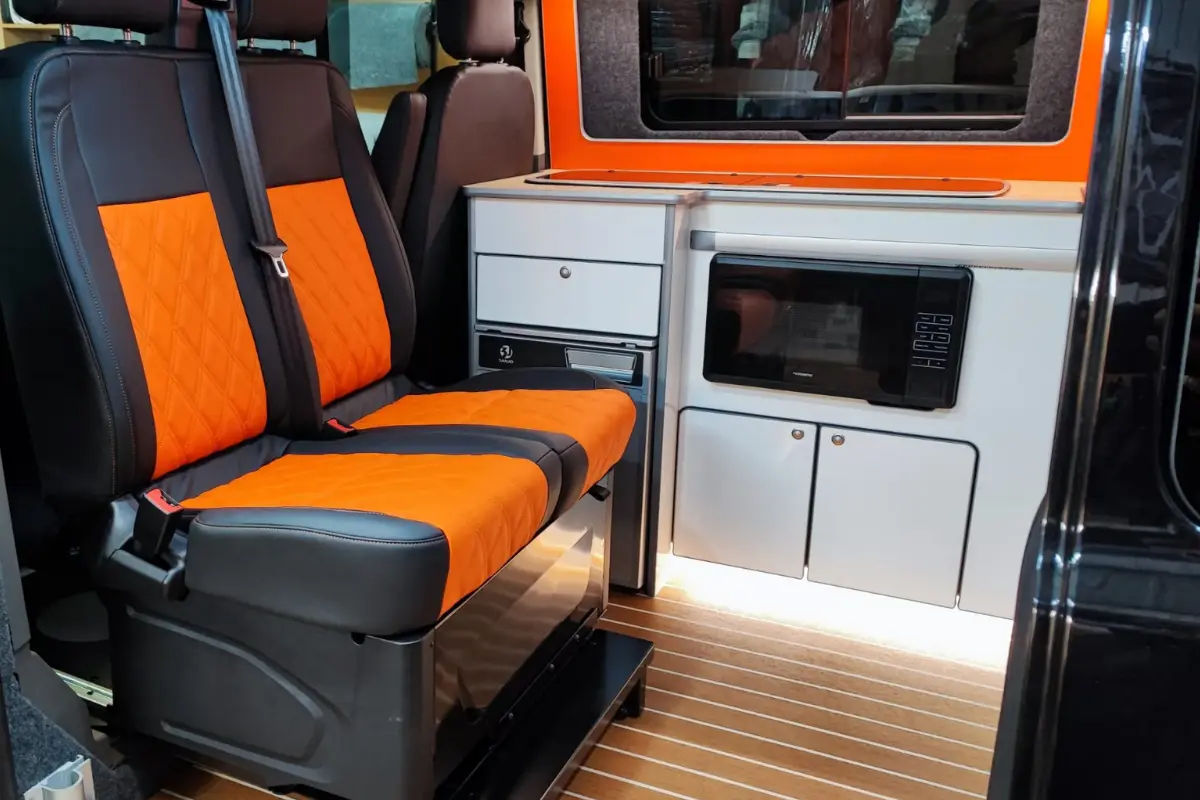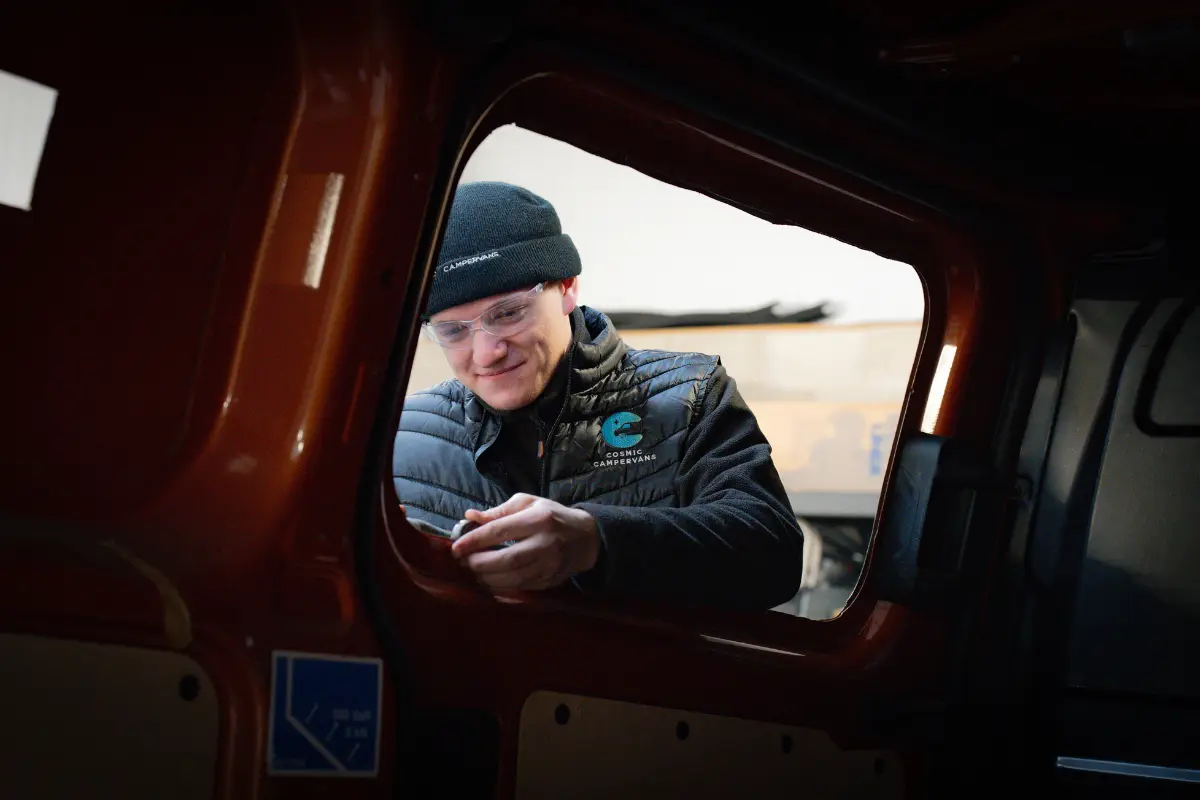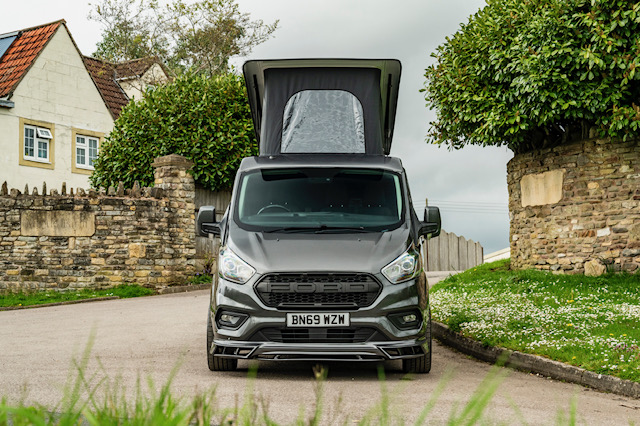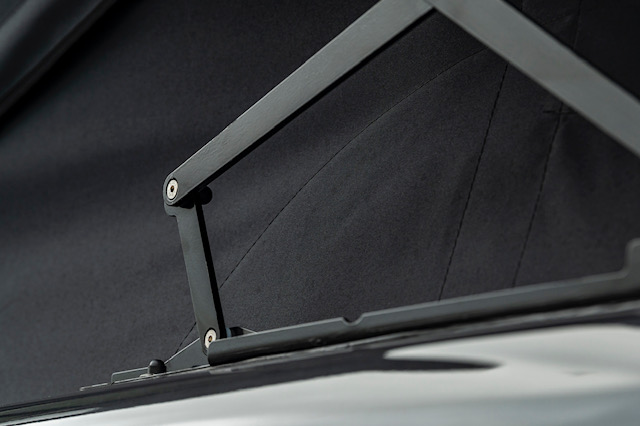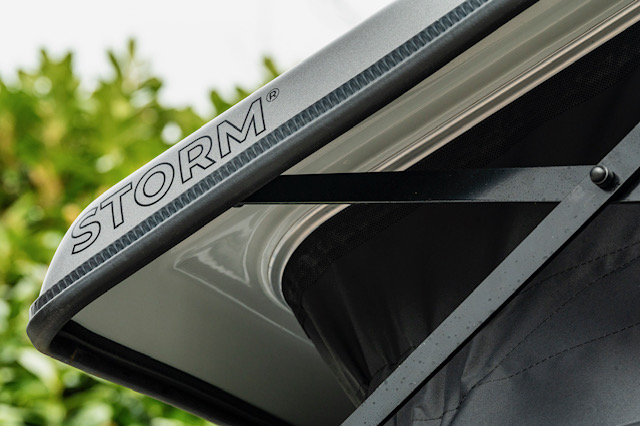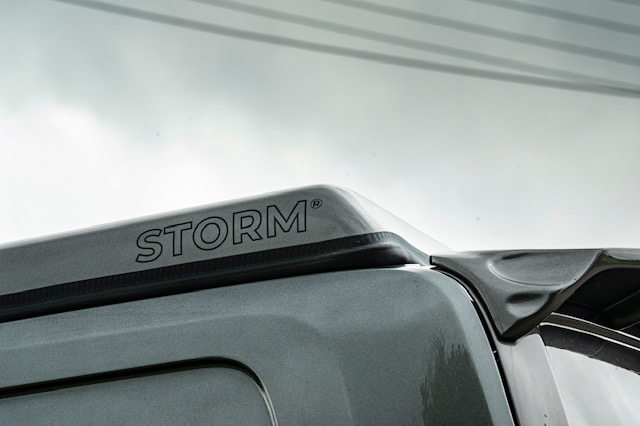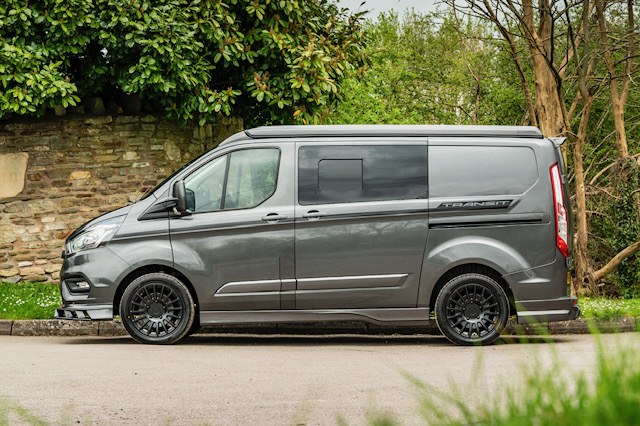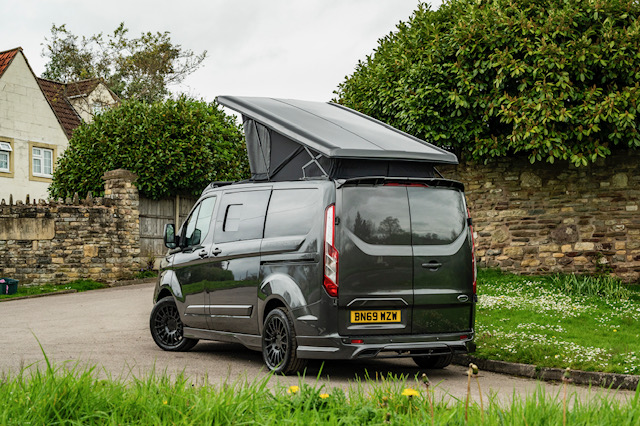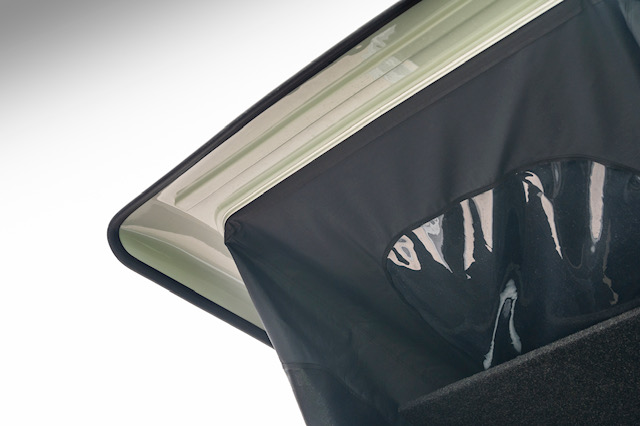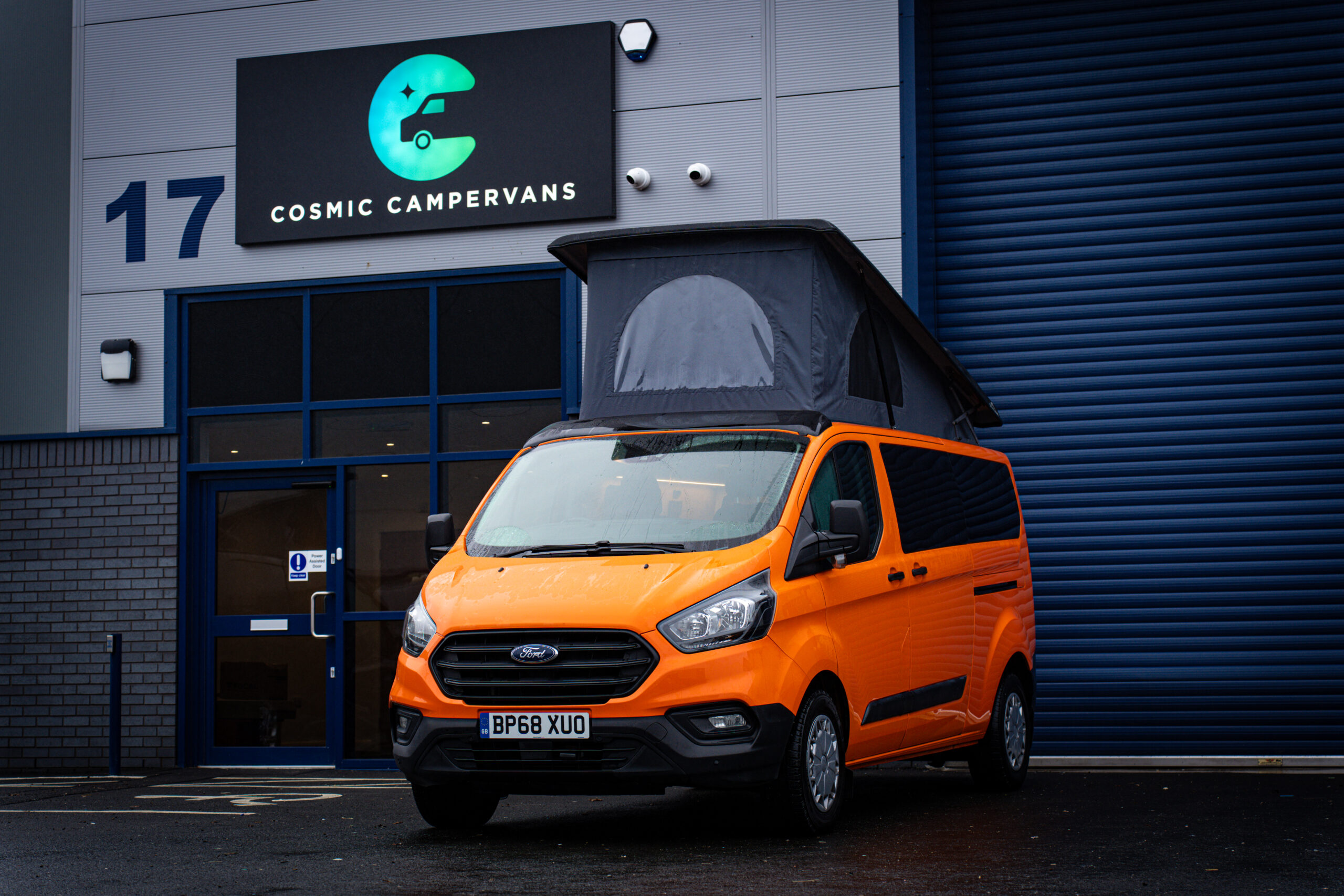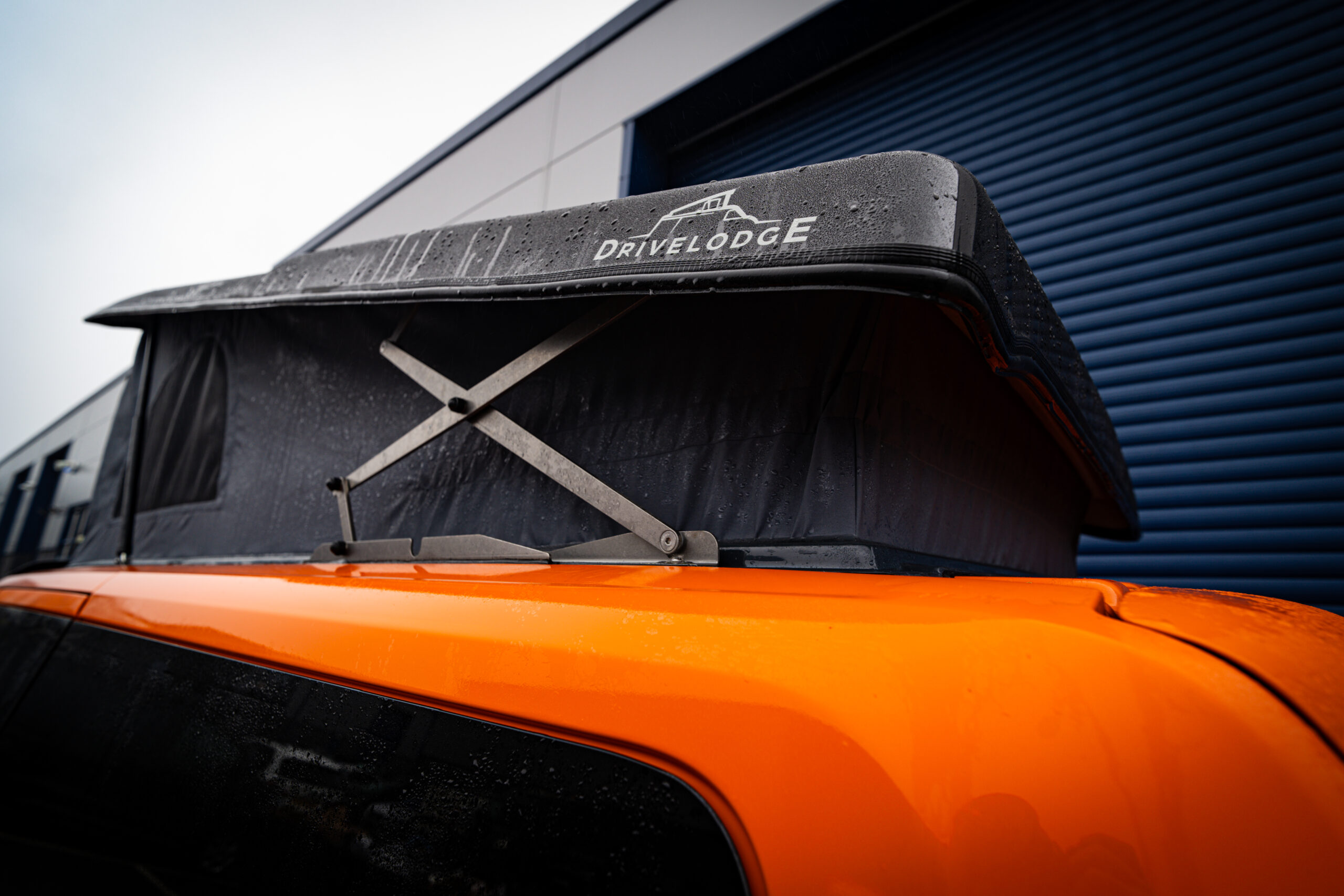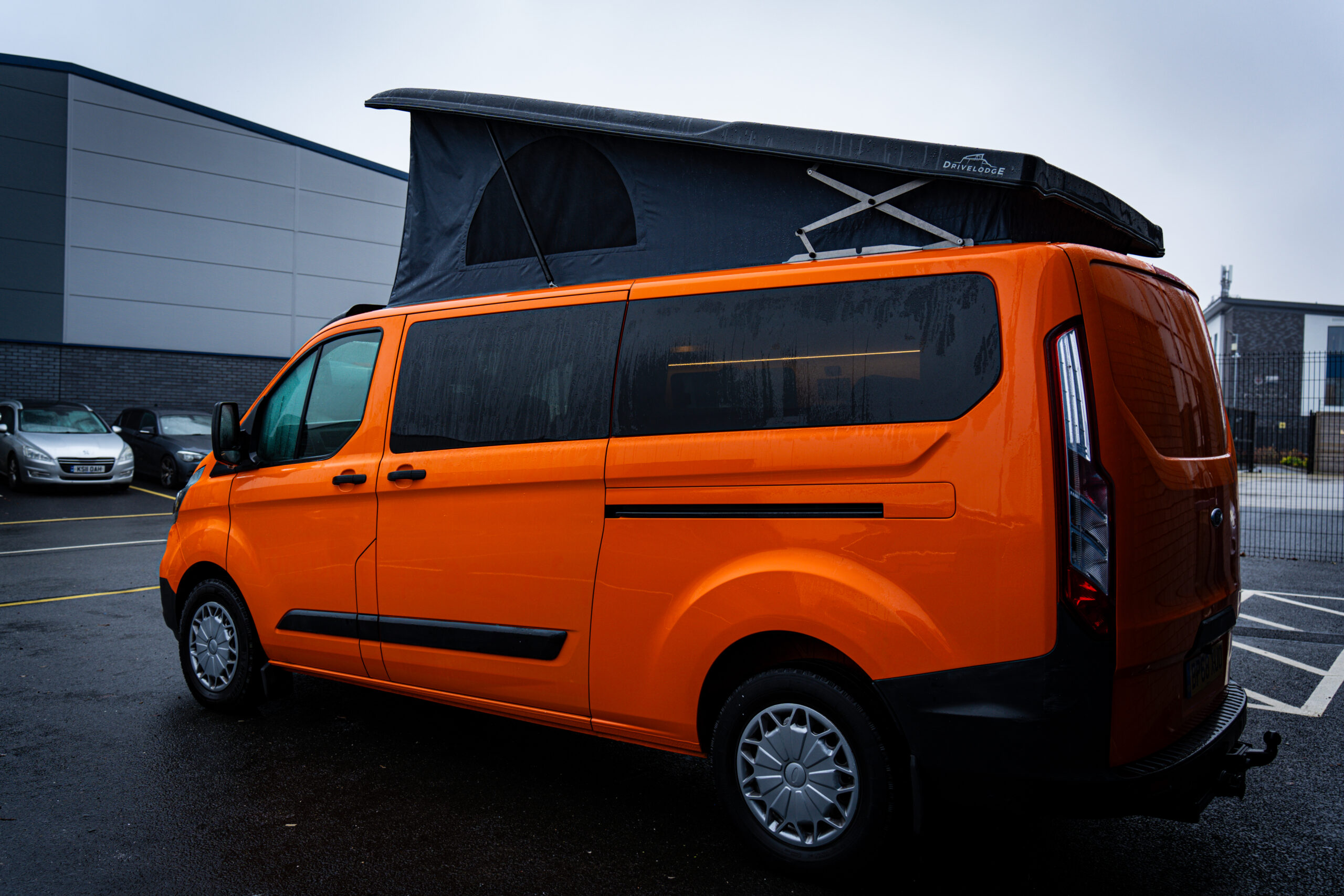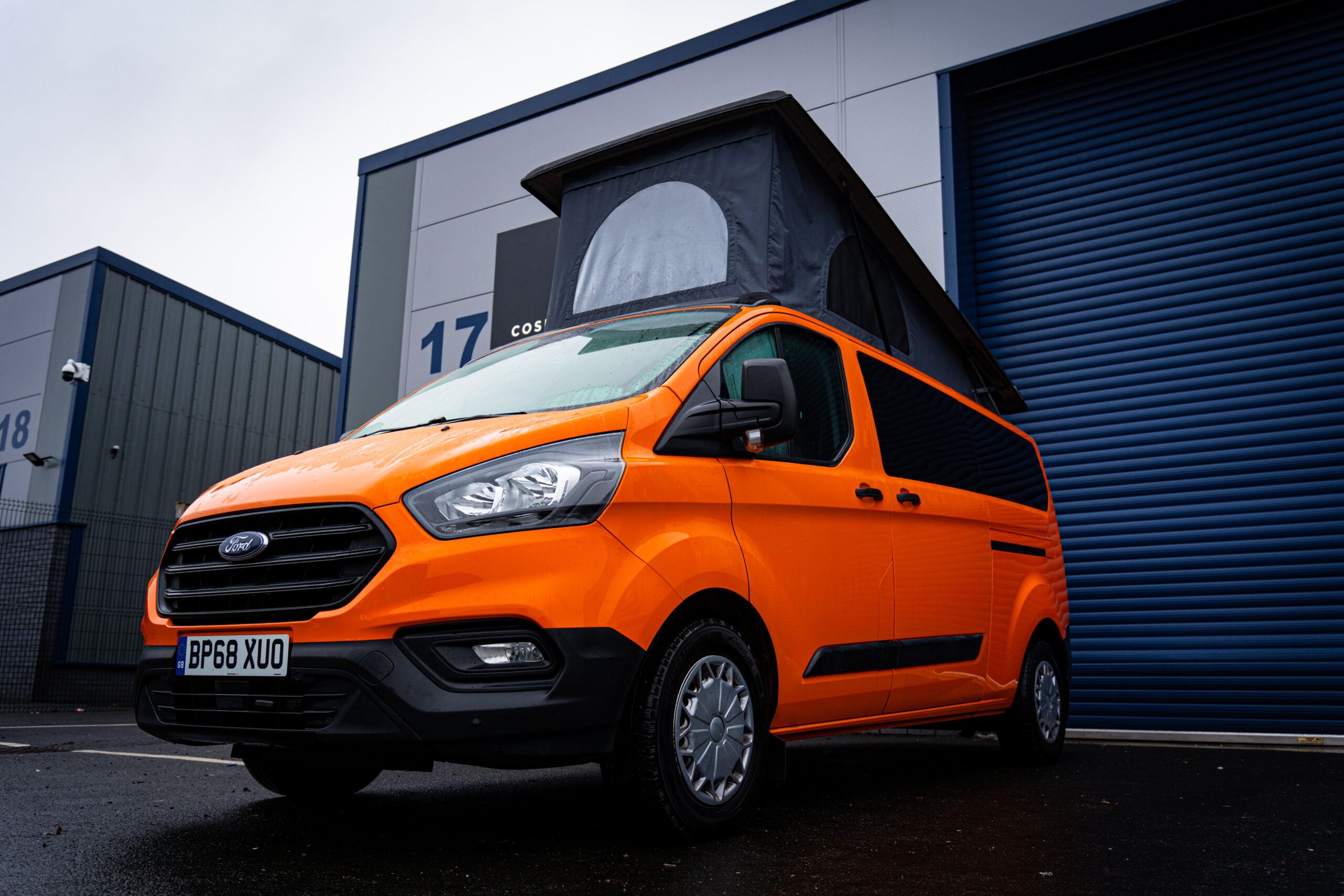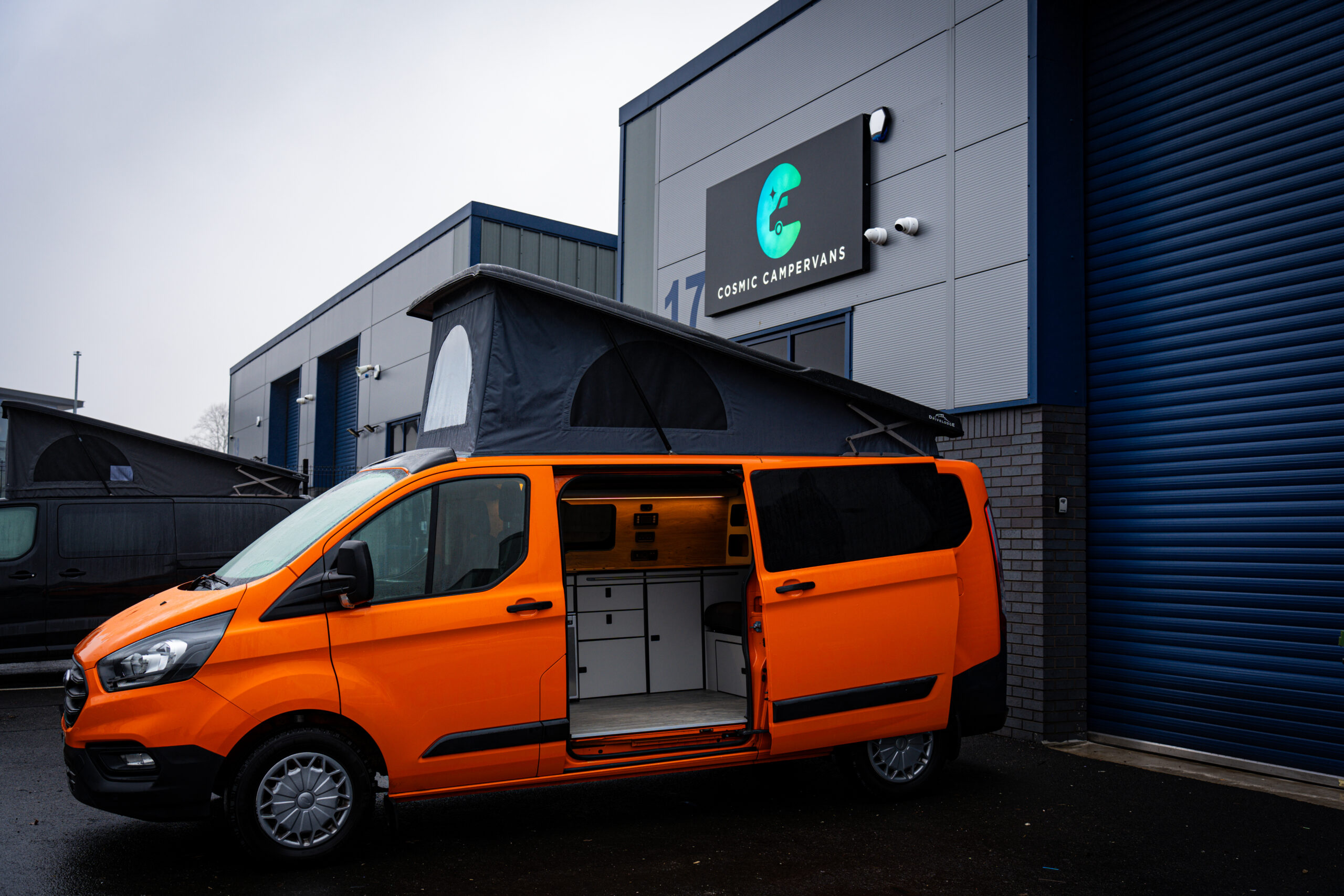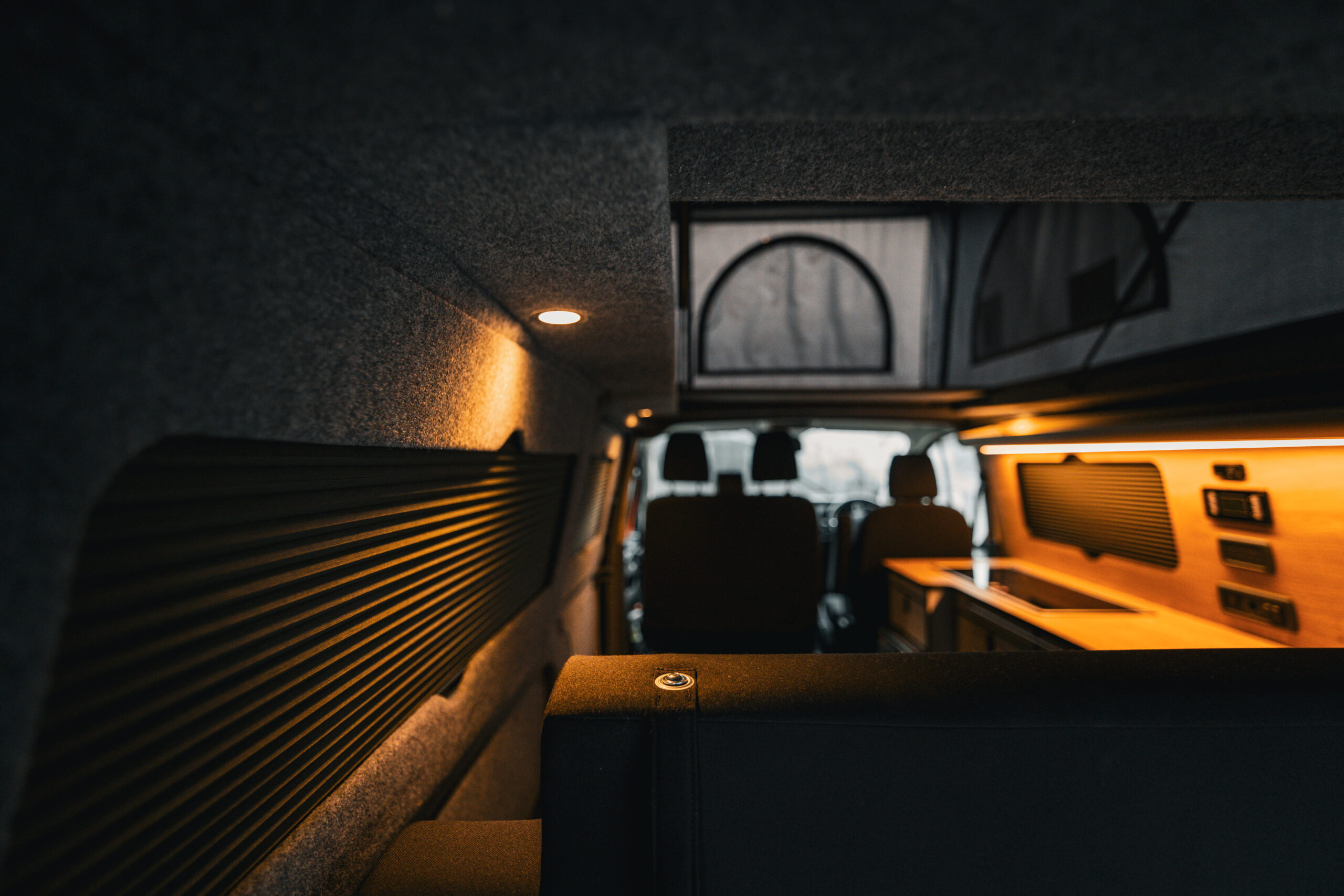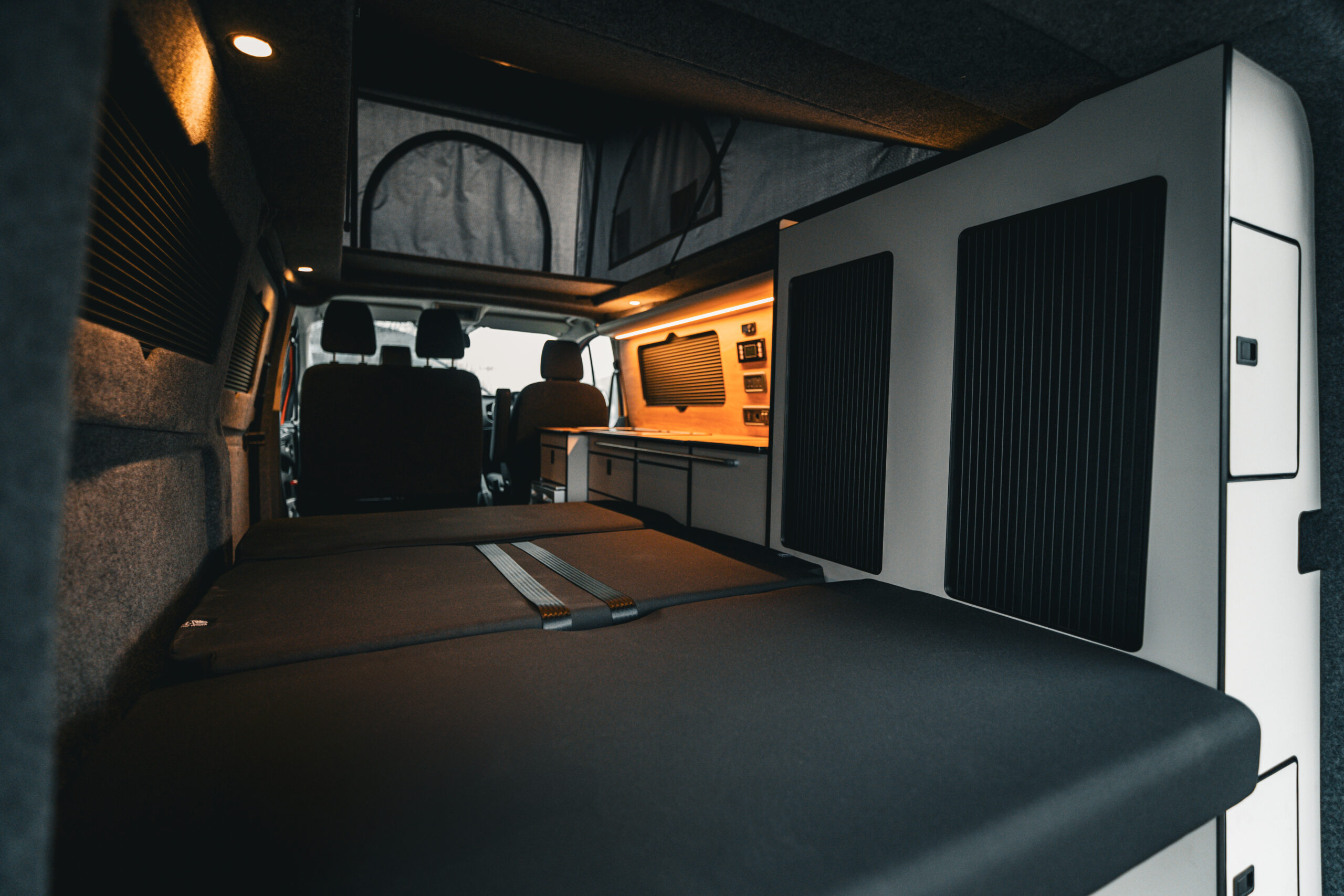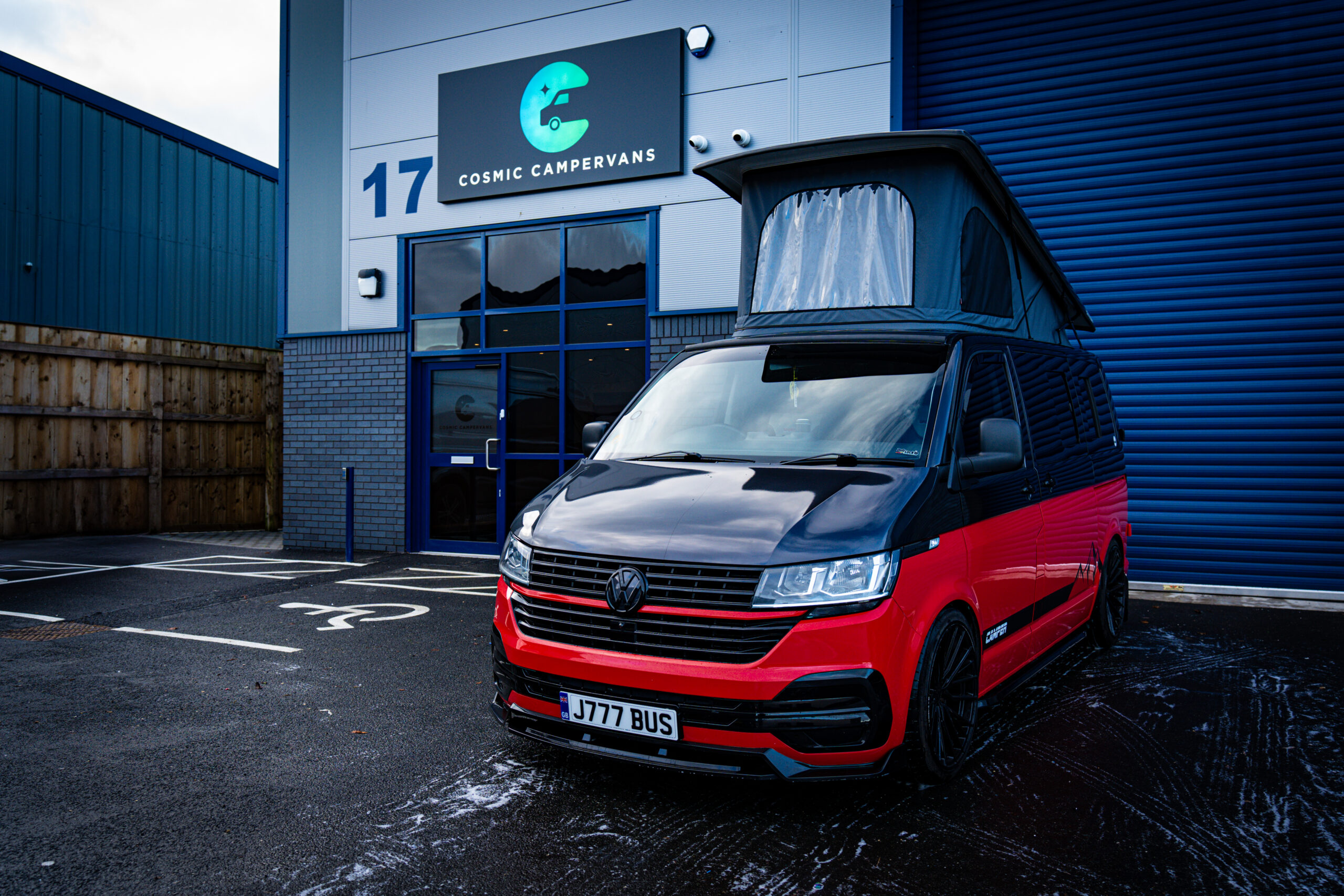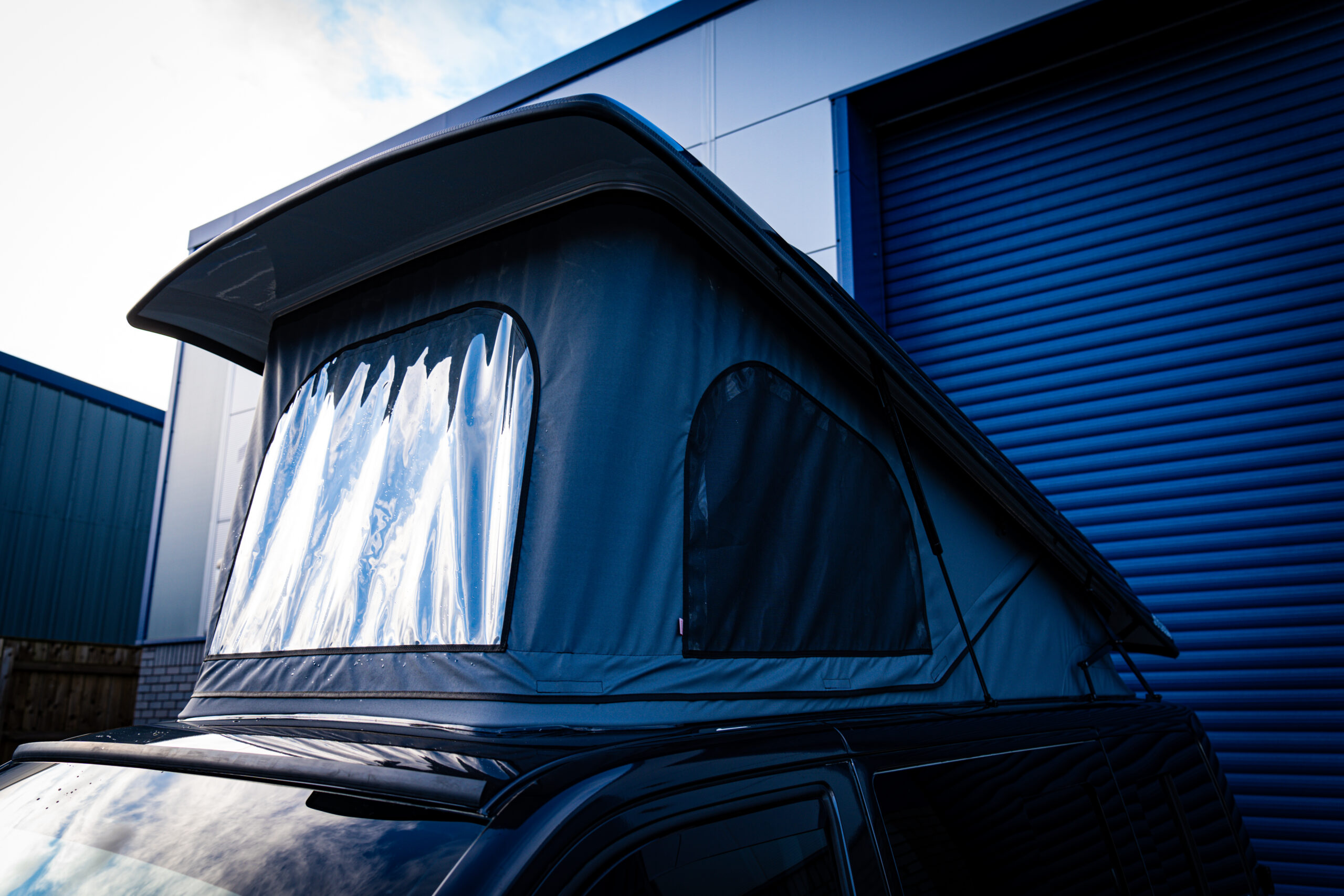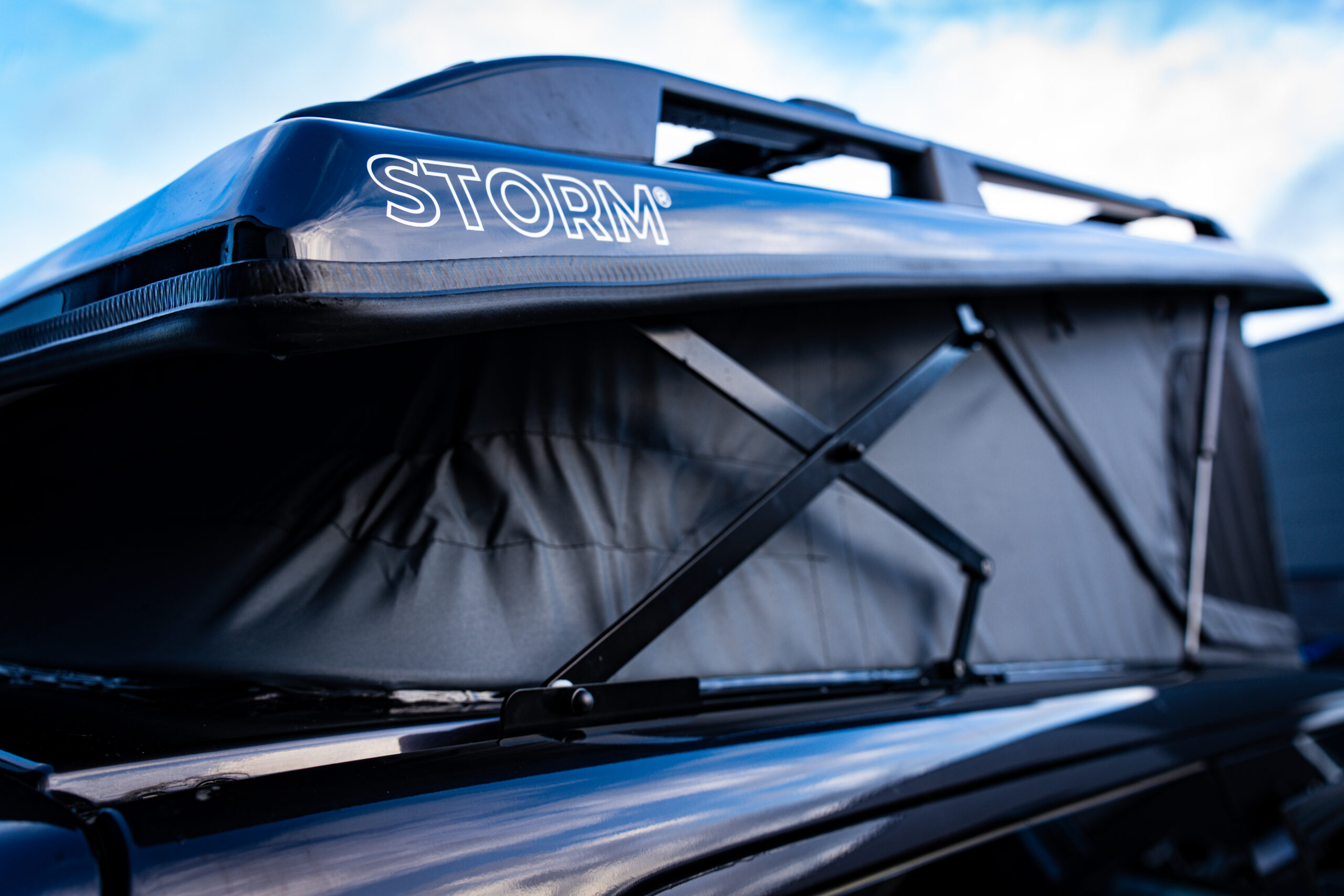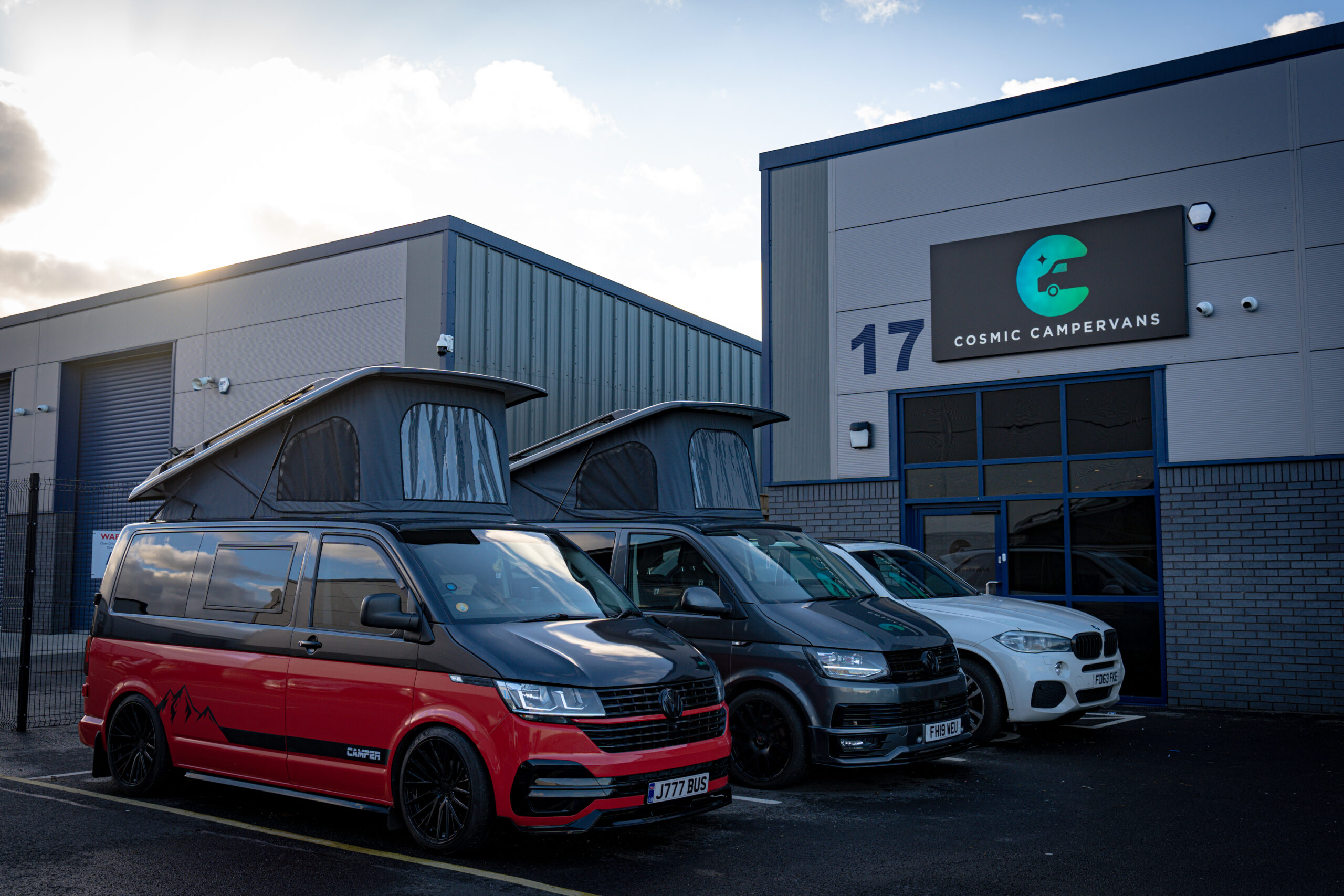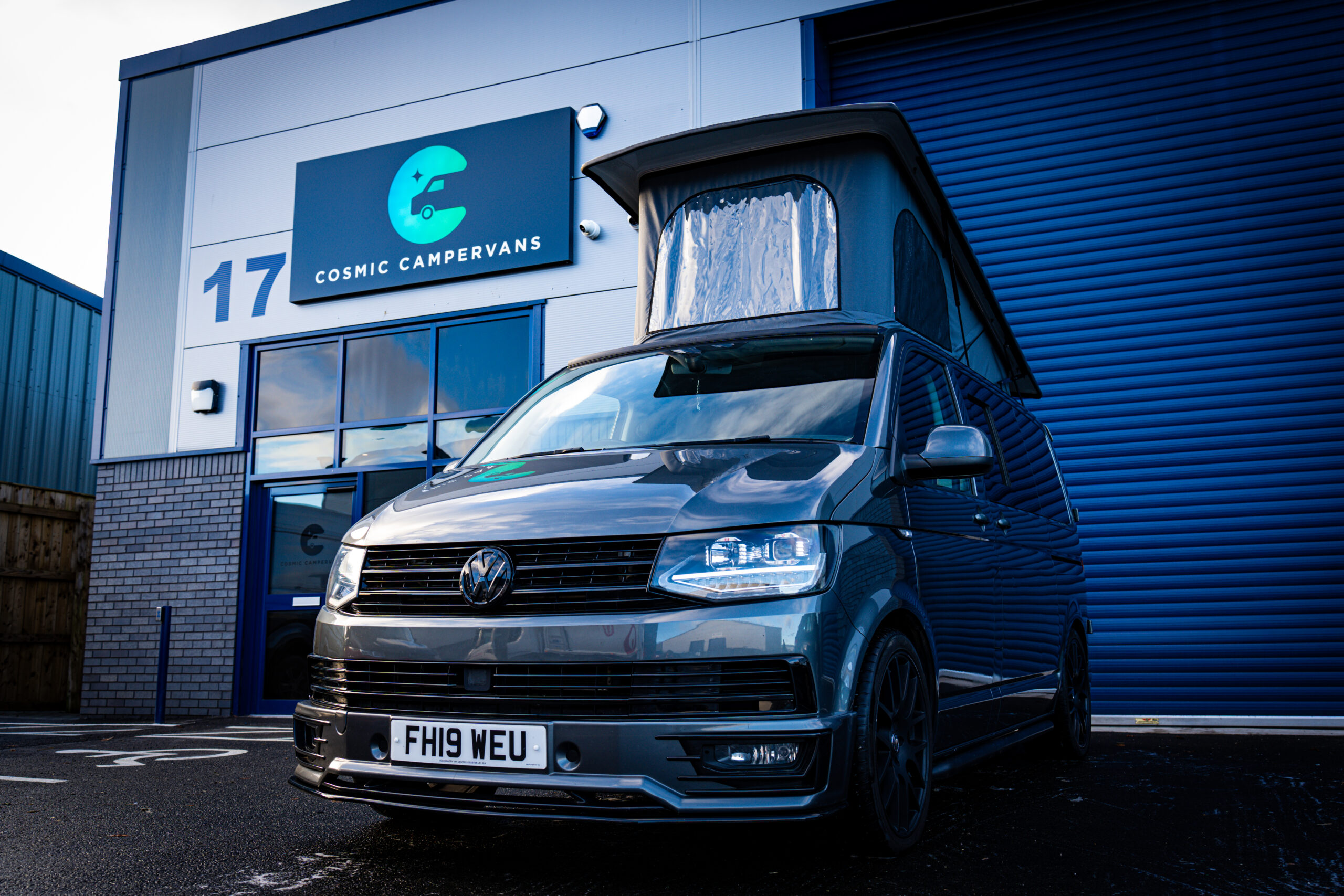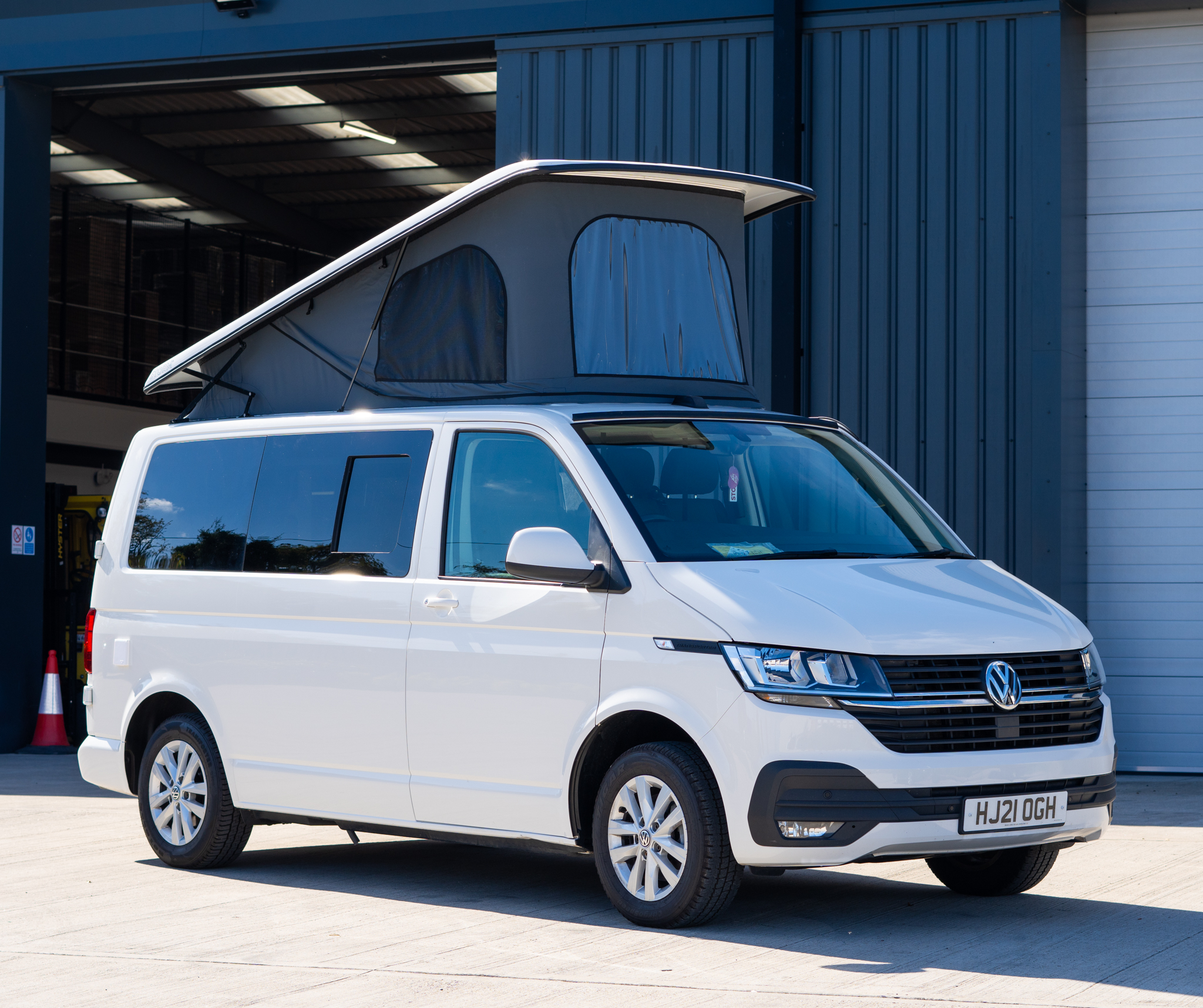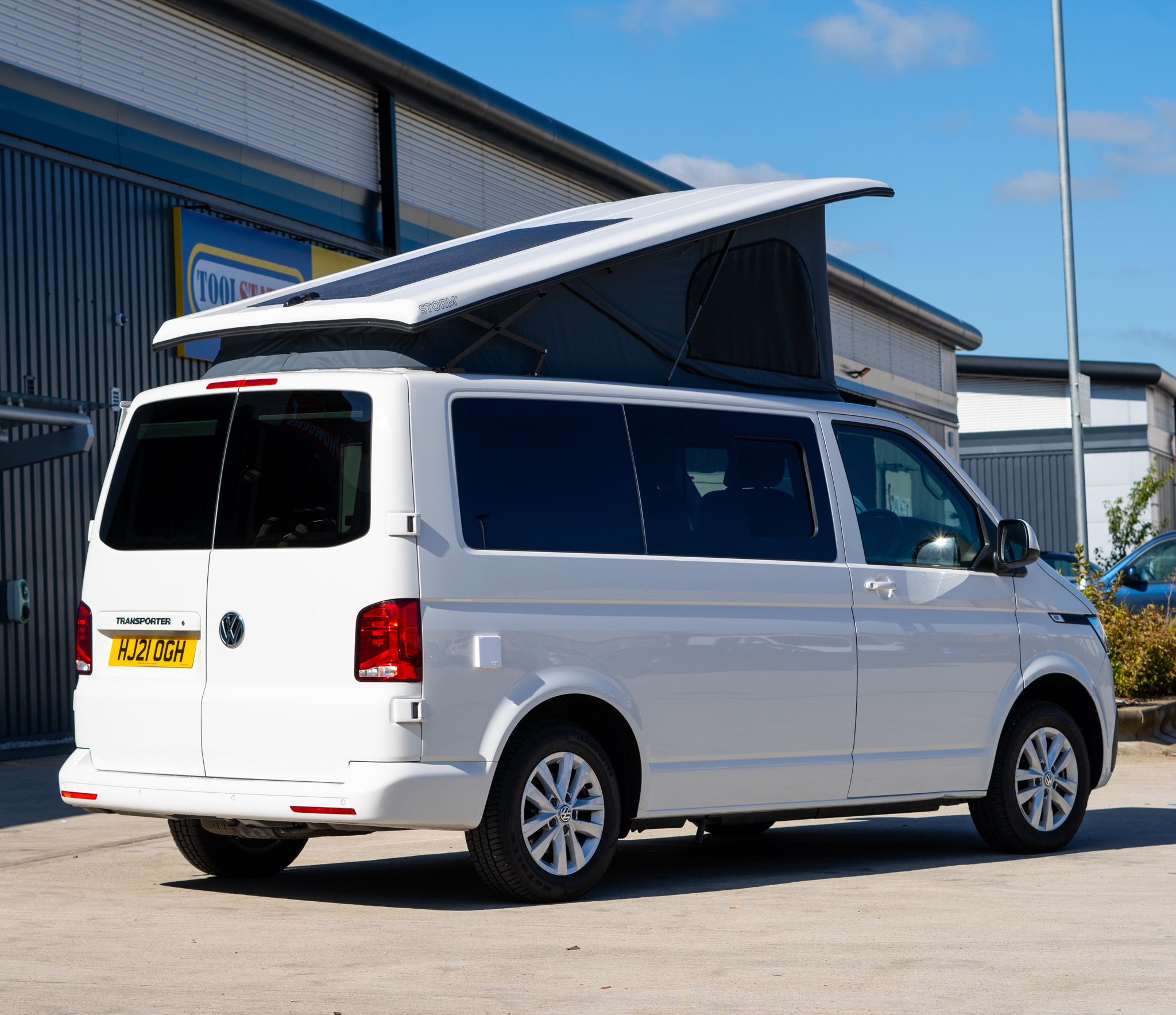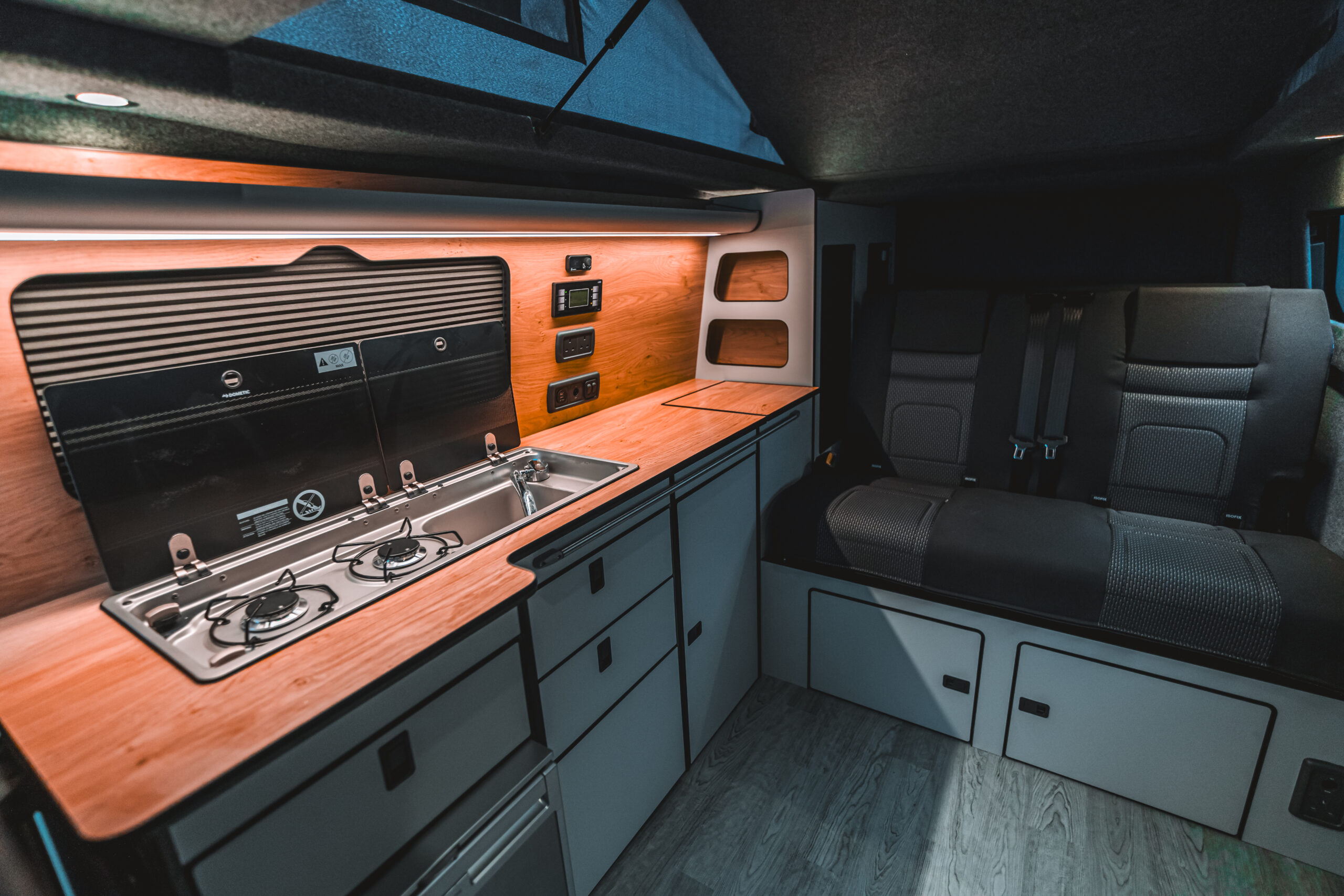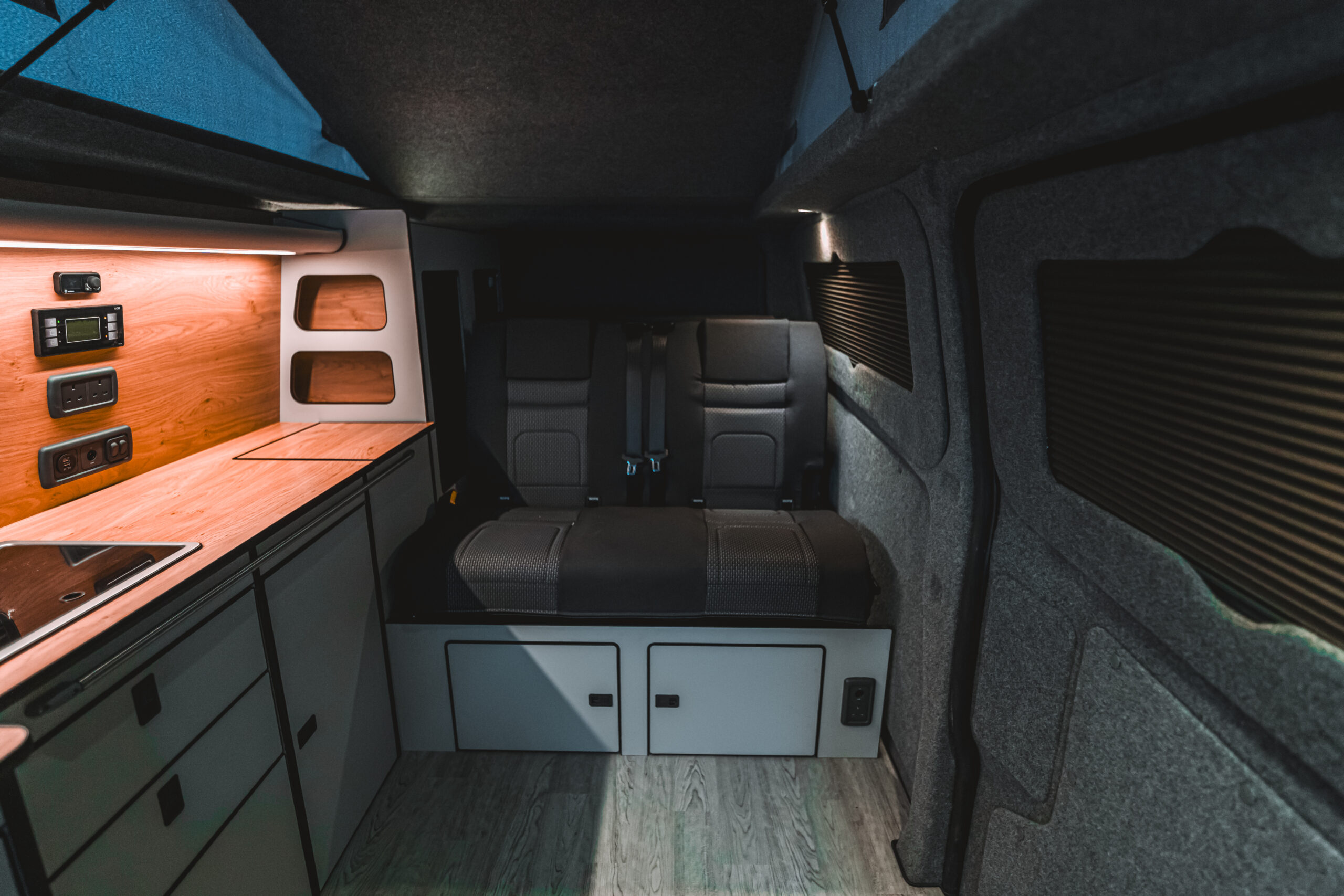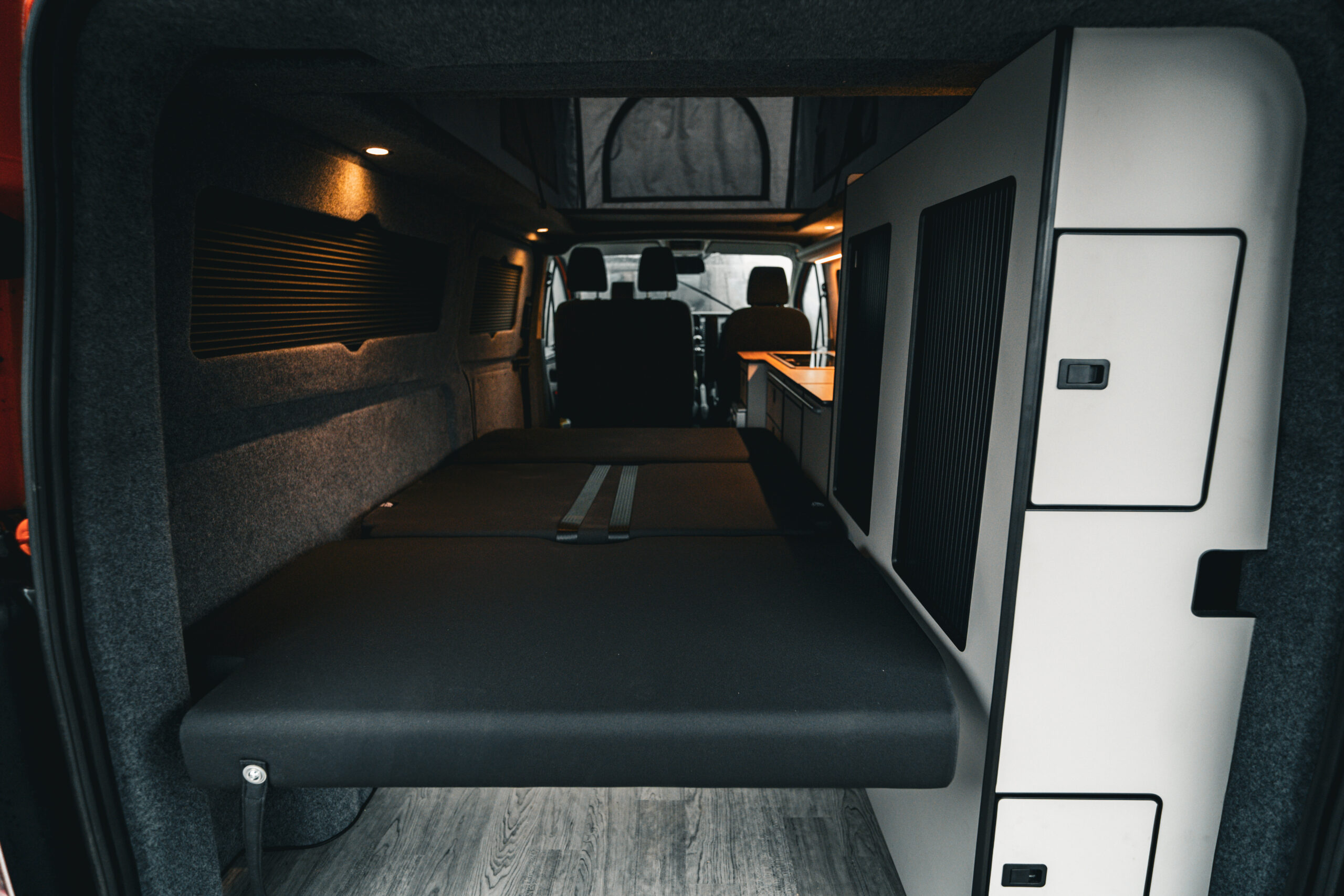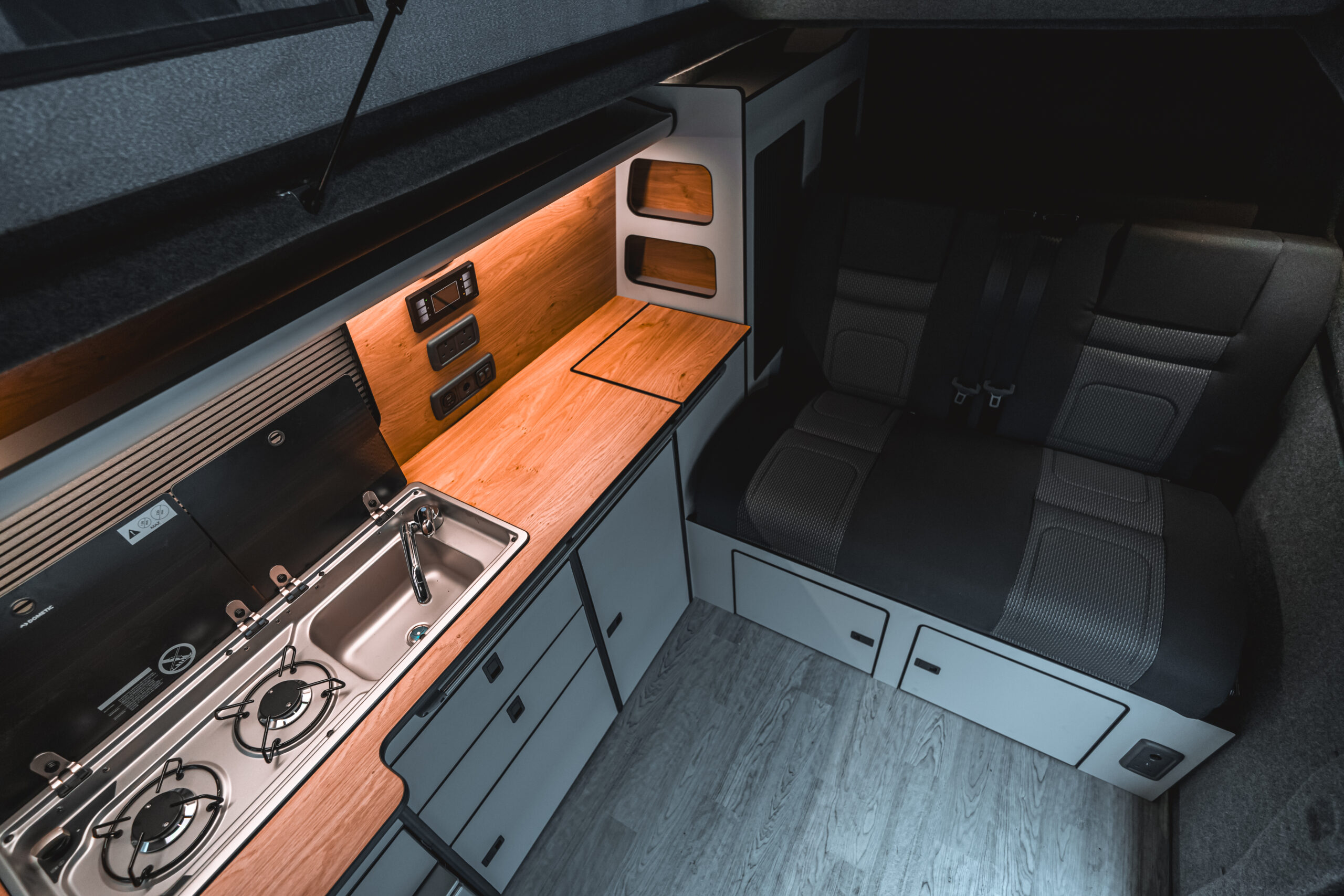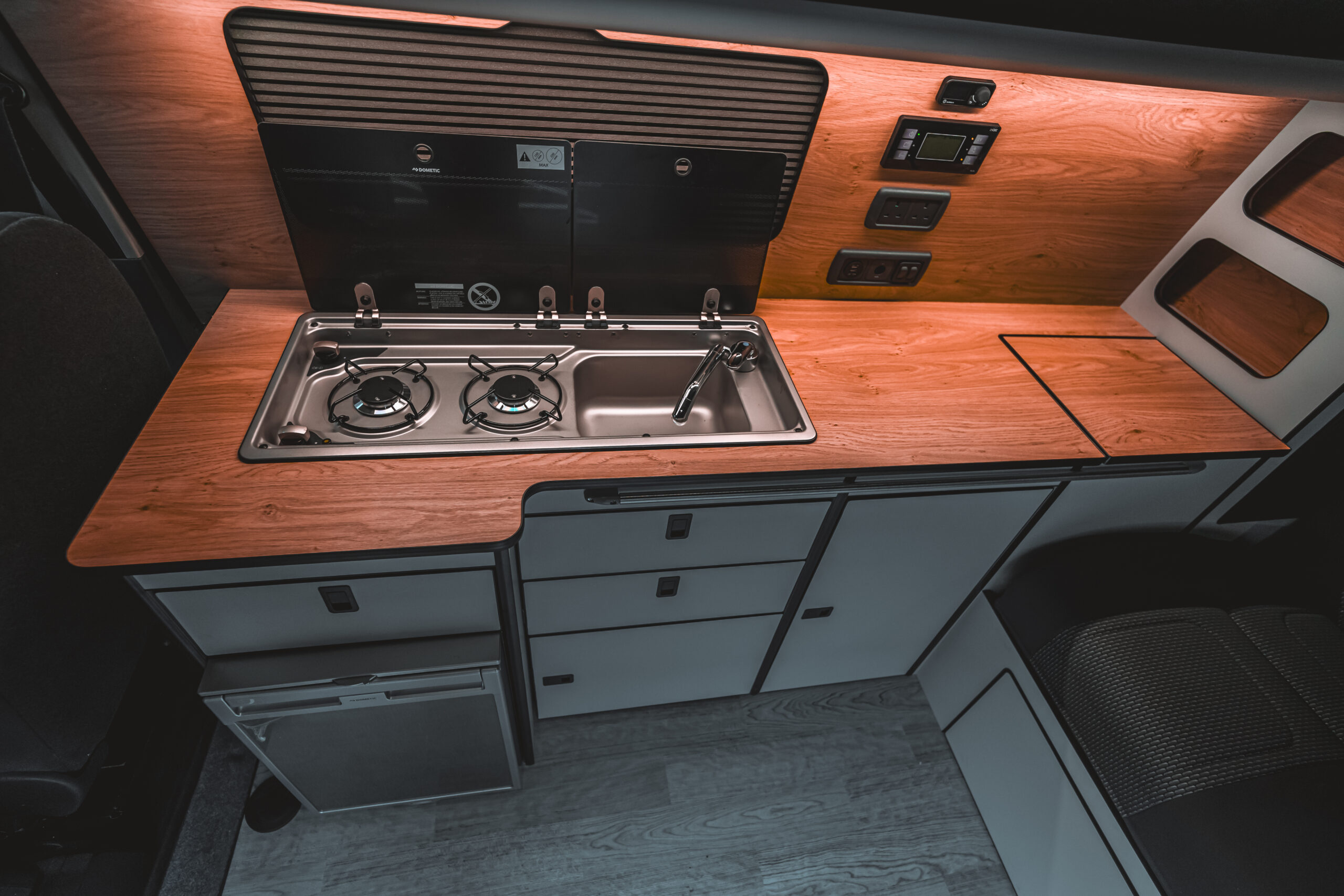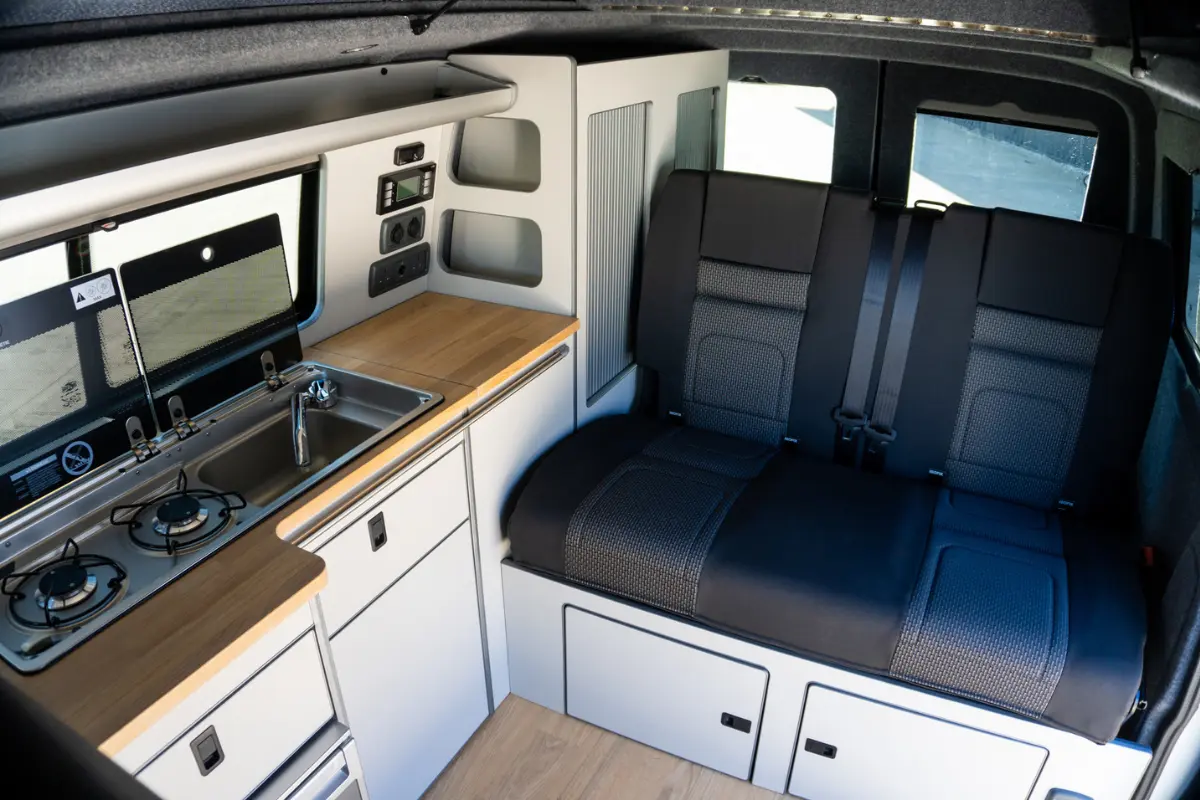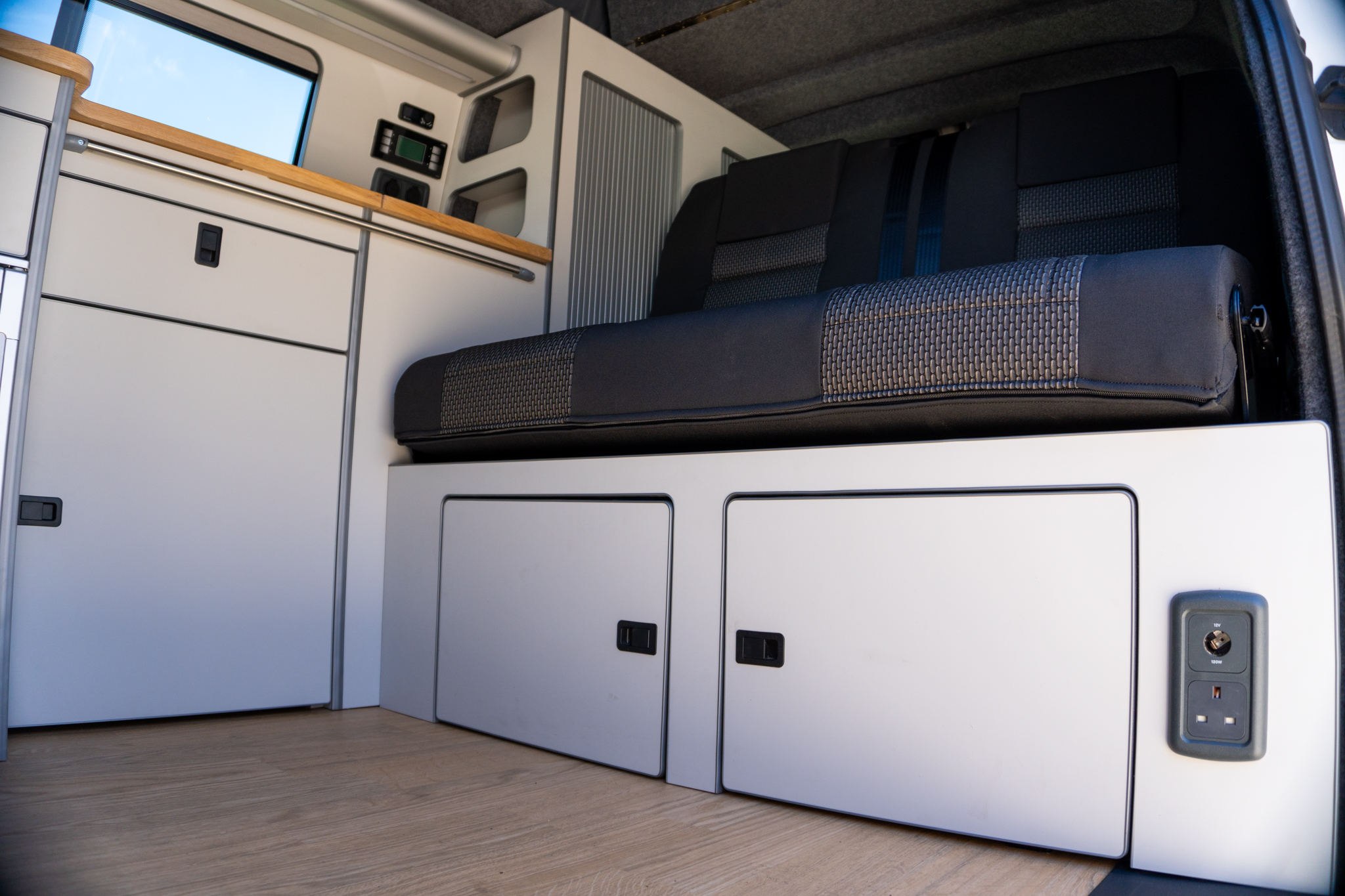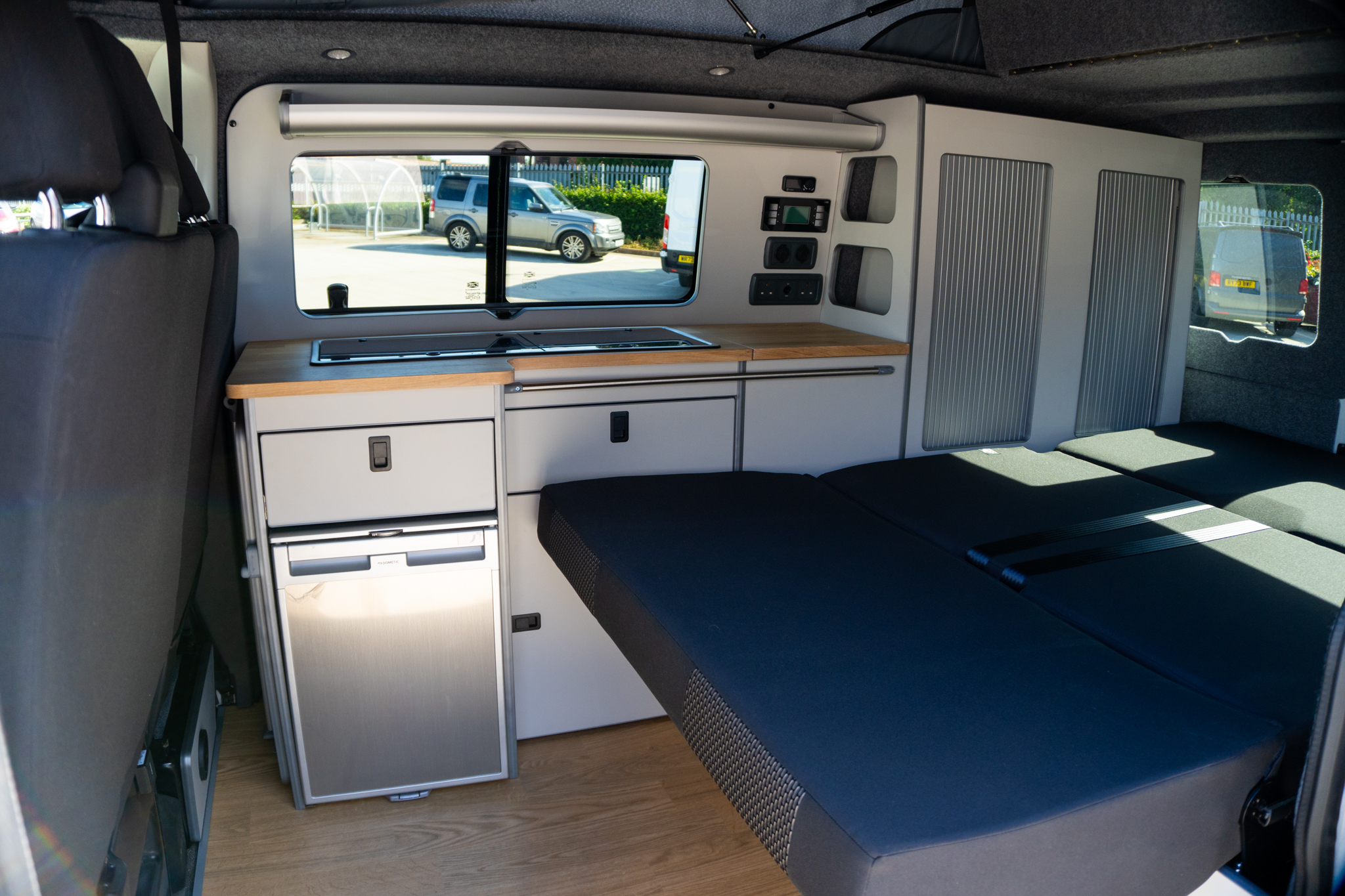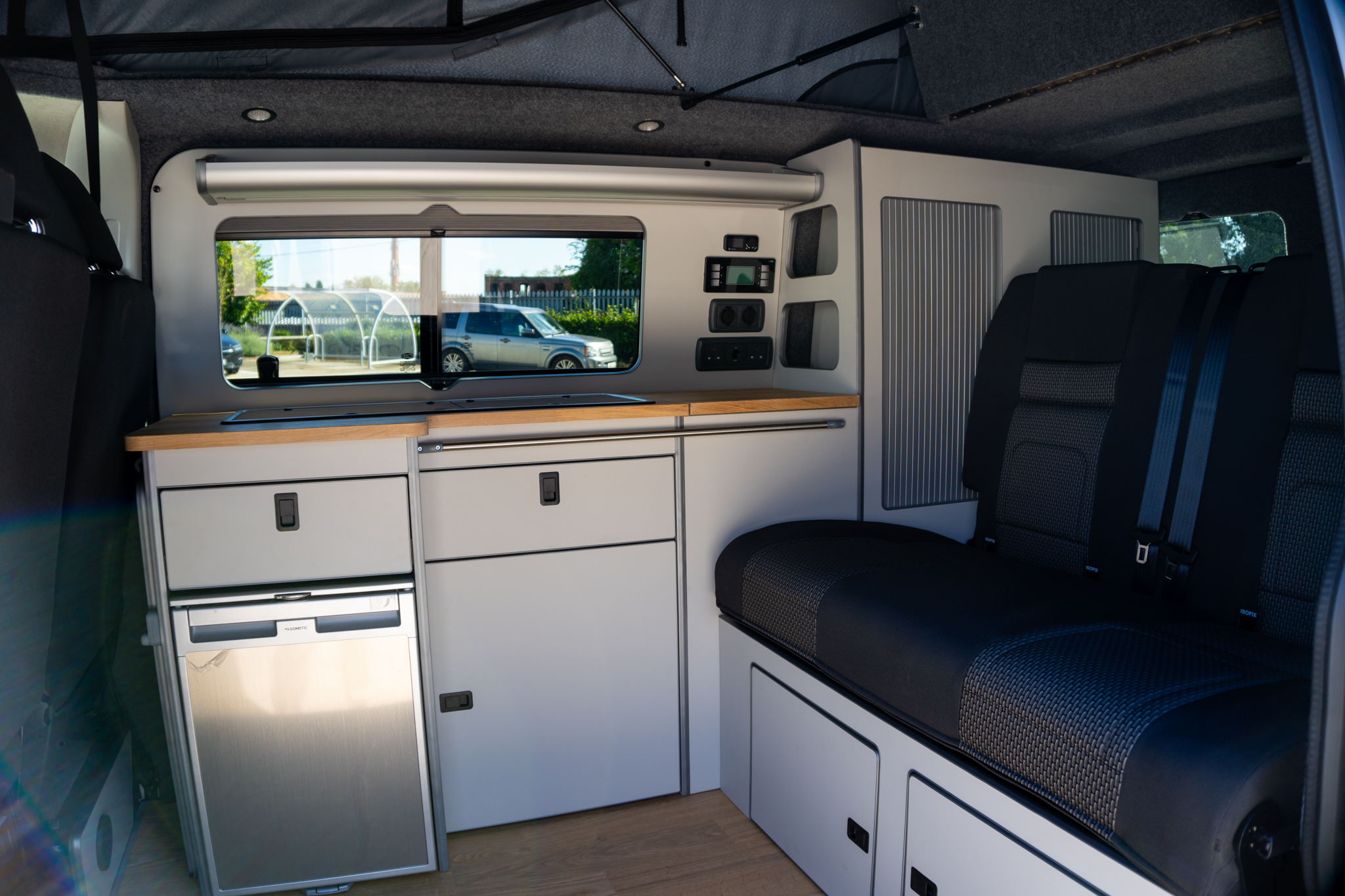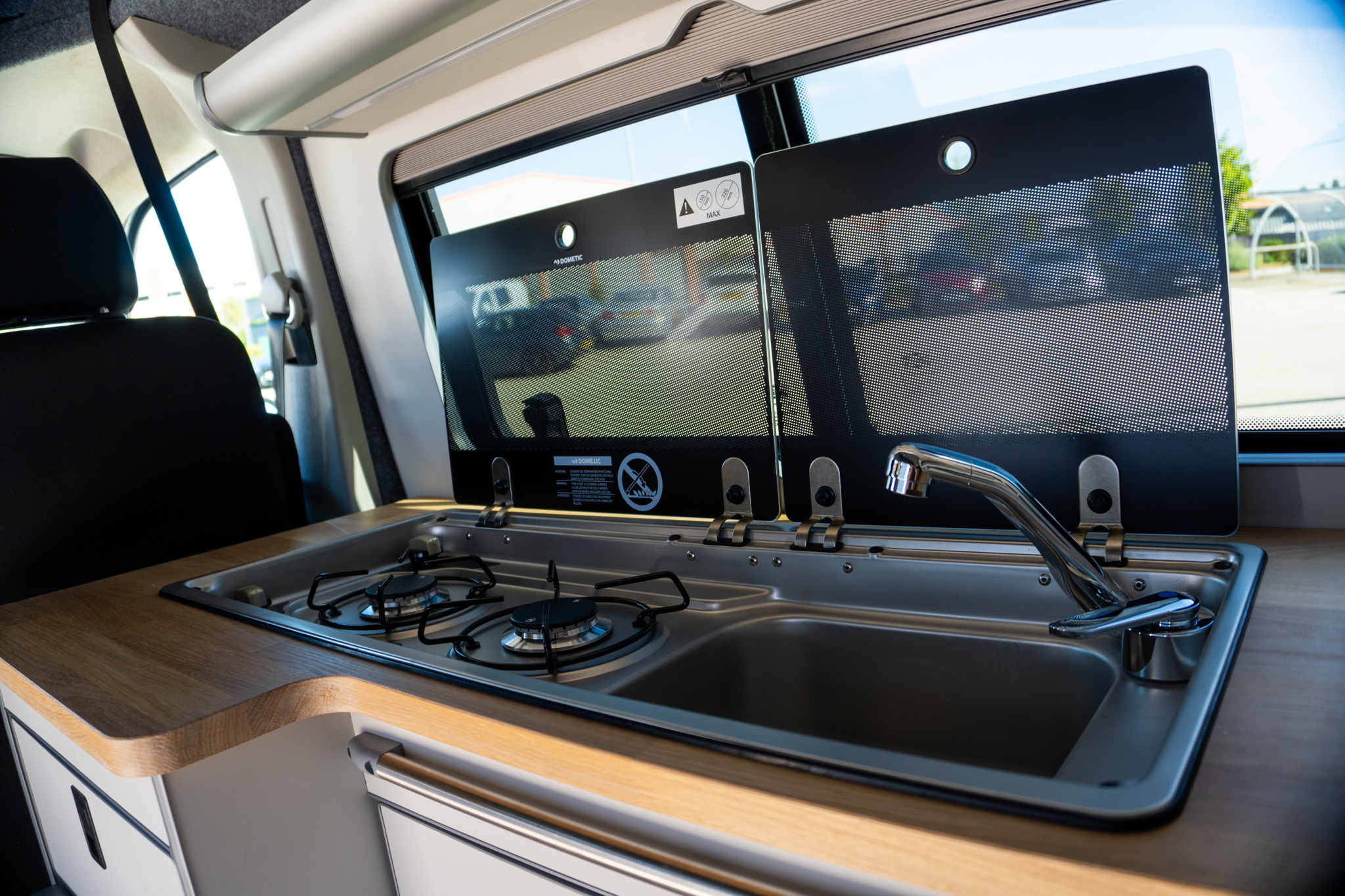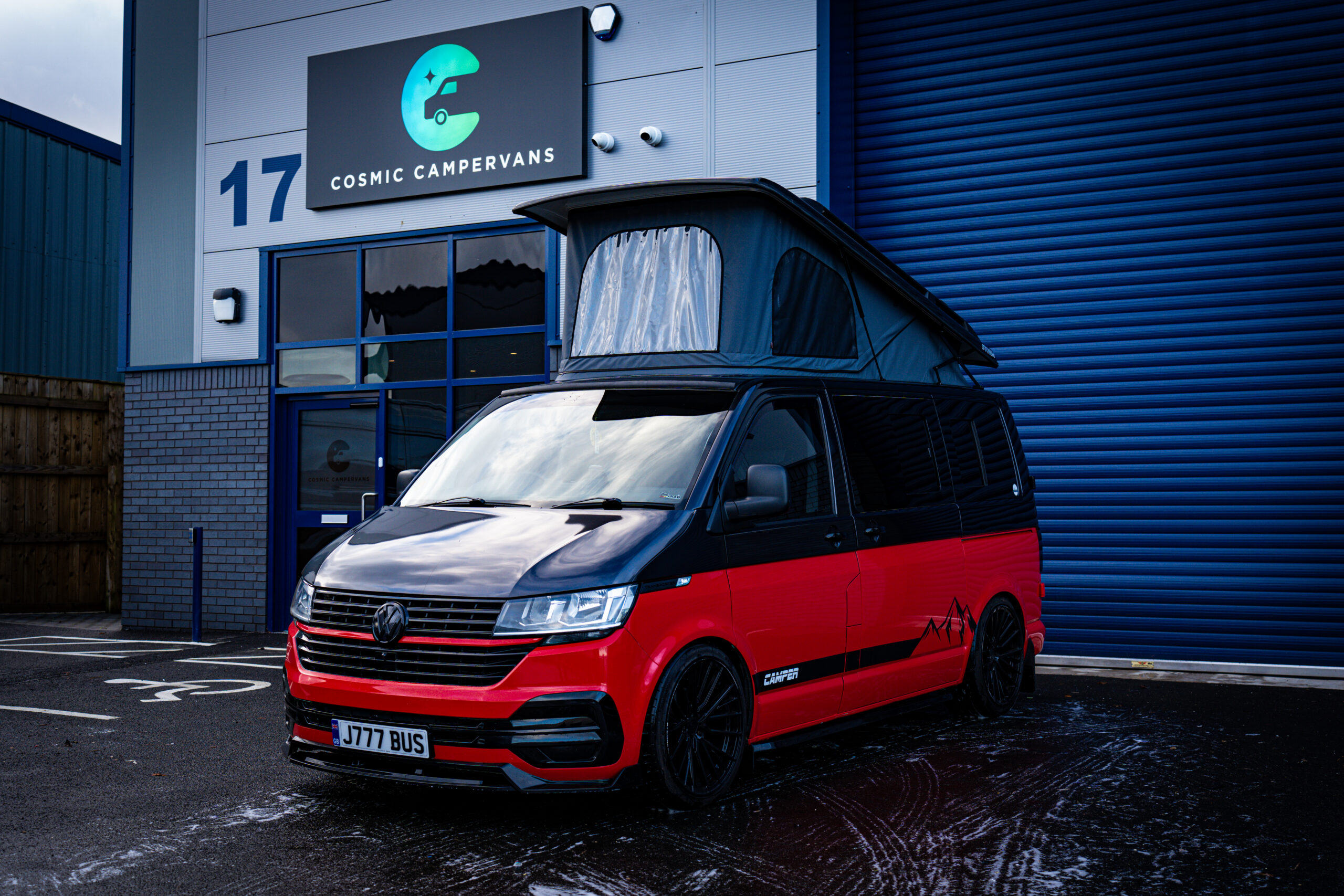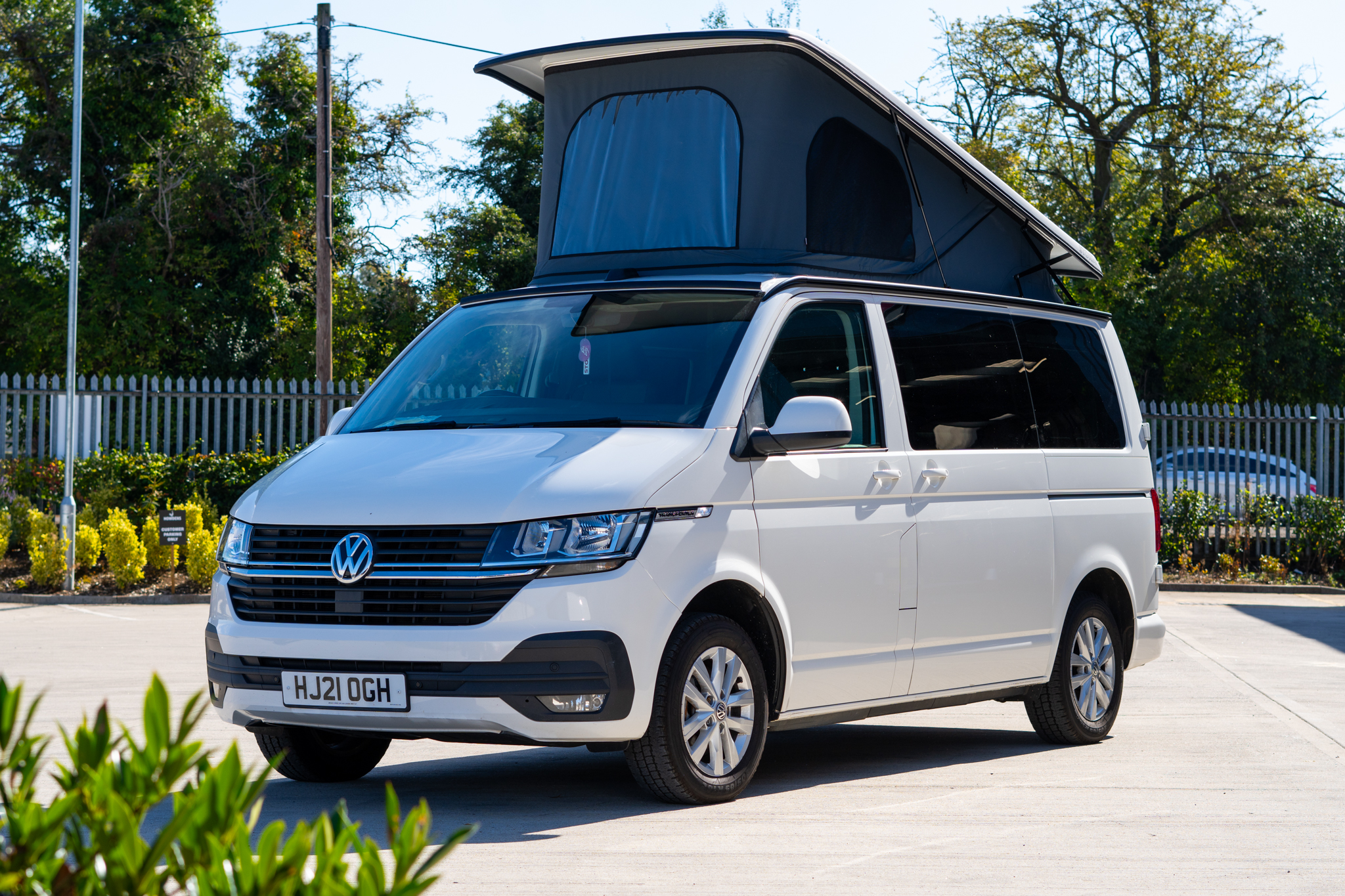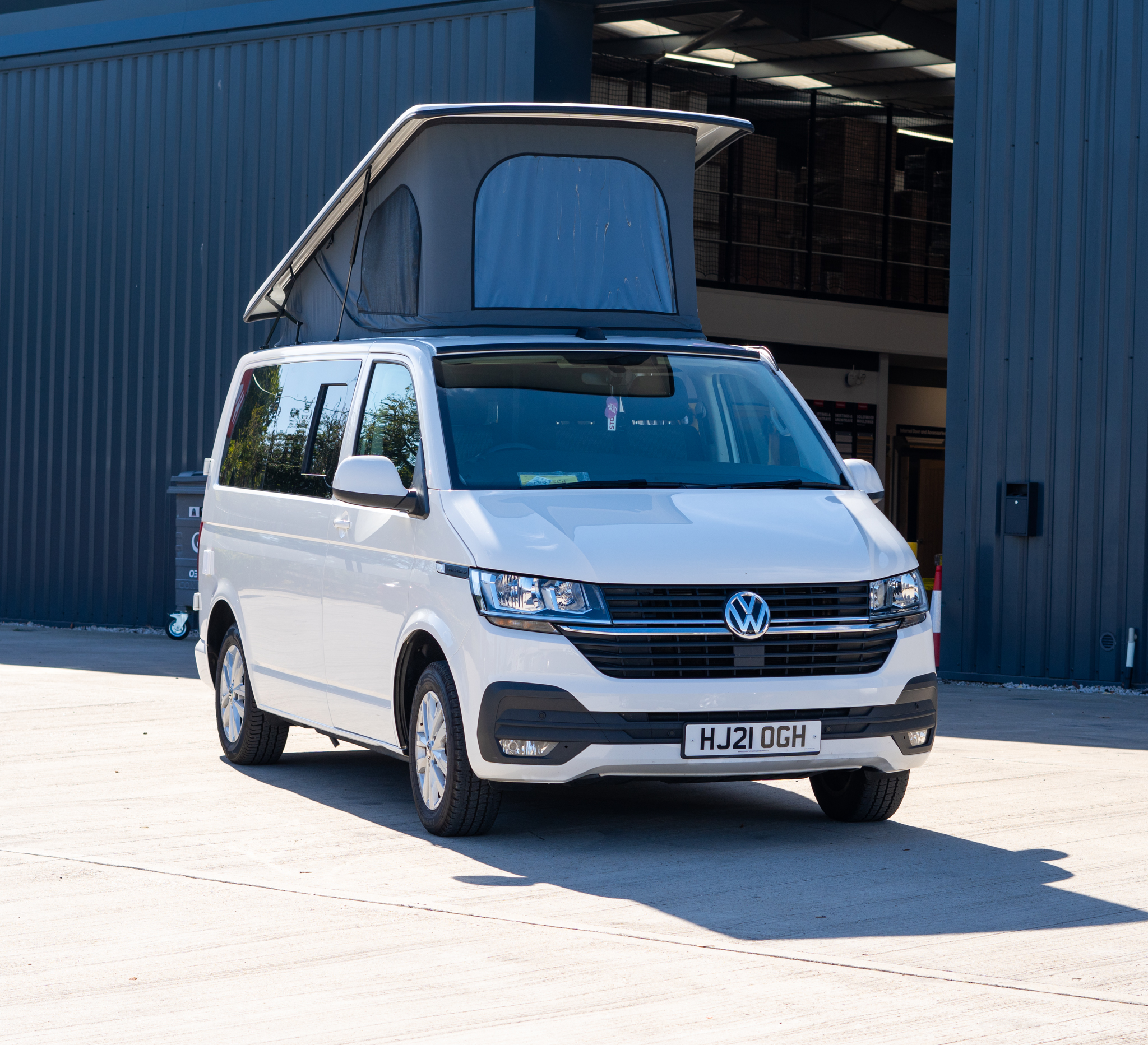DIY vs. Professional Ford Transit Conversion: What’s Best for You?
If you’re reading this, chances are you’ve got your eye on a Ford Transit Custom (or maybe you already have one sitting on your drive) and you’re dreaming of turning it into a campervan. First off – great choice of van!
Now, the big question on your mind: do you tackle the campervan conversion yourself, or do you bring in the pros (like my team at Cosmic Campervans)?
Well, in my opinion, both have their appeals and challenges, and as your mate in the campervan world, I’m here to talk you through it in a friendly, no-nonsense way.
I’ll share my first-hand insights on the pros and cons of DIY vs. professional conversions, common pitfalls to avoid if you go DIY, and what it’s actually like to work with a conversion company.
Taking the DIY Route: Building Your Own Campervan
So, you’re toying with the idea of doing the campervan conversion yourself? I get it. The DIY route has a certain allure, especially for the hands-on, adventurous types.
There’s something appealing about the idea of rolling up your sleeves, spending evenings in the garage fitting insulation and weekends cutting wood for cabinets, then standing back and saying “I built this.”
Many Transit Custom owners near Derby and beyond have gone down this path and found it super rewarding. But (and this is a big but) there’s also a reason not everyone who starts a DIY conversion finishes one.
Let’s chat about the reality of a DIY Transit Custom camper conversion – the good, the bad, and the ugly.
The appeal of DIY
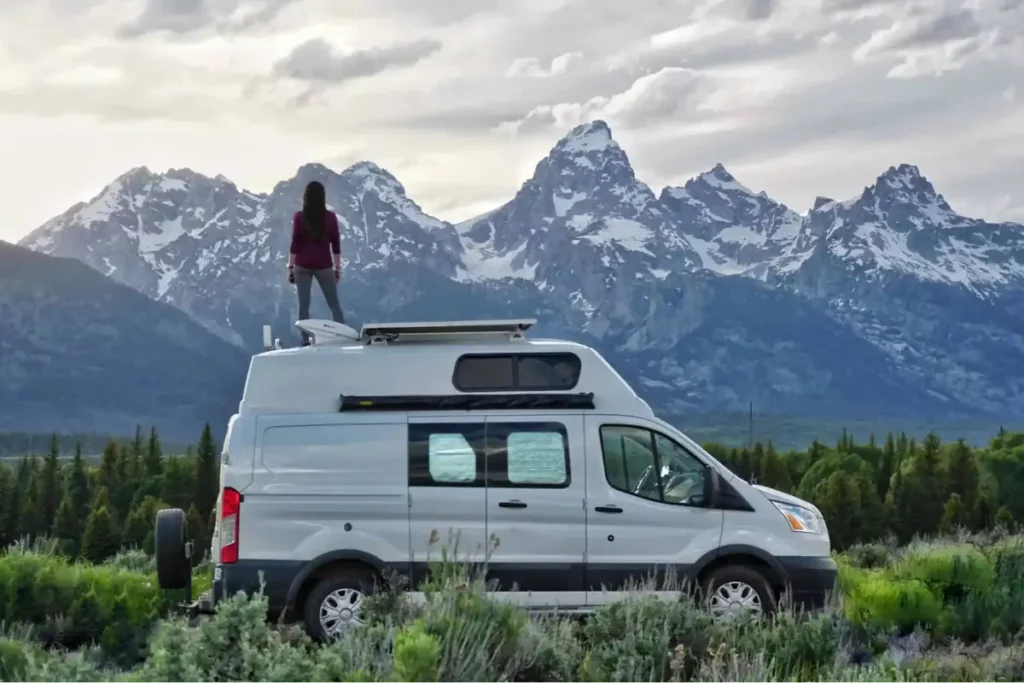
You could save a bit of money on labour costs
First off, doing it yourself can save you money on paper. A big chunk of professional conversion cost is labour, so if you provide the labour (your own blood, sweat, and tears), you can cut the budget significantly.
If you’re handy with tools and already have some materials or can scavenge parts, the savings can be real. Plus, you can spread out the spending over time, tackling the build in stages as funds allow.
You get to take on the project yourself
For many, DIY is also just fun. You might love learning new skills – carpentry, basic plumbing, auto electrics – and a full van conversion will certainly teach you a thing or two (often the hard way!).
There’s also the freedom of complete creative control. Want to use a funky fabric you found for the seat cushions? Go for it. Design a custom fold-out table that doubles as a dart board? Why not.
You’re not bound by someone else’s catalog or timeline. And let’s be honest, when you finally finish the build, the sense of accomplishment is huge.
Every time you camp in it, you’ll have that pride, knowing you turned an empty metal van into a cozy camper with your own two hands.
I remember one of my early projects before I went pro was a self-build on an old Transit. I had practically no budget, so I repurposed an old caravan interior and built my own cabinets.
It was rough and ready, but I loved it. Drove it all over the UK. Those DIY experiences even helped spark the passion that became Cosmic Campervans. So I’m the first to cheer on anyone who wants to give DIY a shot – it can be done and it can be great.
The hard reality checks of DIY
Now for the truth bomb…a DIY conversion is not all sunny afternoons and quick wins. It’s a big undertaking. Think of it as taking on a part-time job for several months (at least). Here are a few realities to chew on.
Massive time and effort commitment
Have you got plenty of spare time and patience? Because you’ll need both by the bucketload. What a professional team might accomplish in a few weeks can easily take an individual many months.
I’ve seen DIY builders enthusiastically start in spring hoping to use the van by summer, and then summer comes and the van is still a shell with some wires hanging out.
It’s totally normal – converting a van has dozens of steps: insulating, wiring, cutting holes for windows and vents, building cabinets, upholstering, plumbing for sinks or possibly a shower, etc. Each of those can be a mini-project in itself.
I won’t sugarcoat it: a DIY conversion can test your patience. There will likely be days when nothing fits as it should, or a hidden bit of rust throws a spanner in the works, or you’re just fed up because you’d rather be out camping than lying under the van running wiring.
I’ve had people tell me that converting their van was more stressful than their day job!
On the flip side, if you enjoy problem-solving, you might thrive on these challenges. It really depends on your personality. Are you the kind of person who likes a big project and can see it through? Or do you know you might lose motivation halfway?
There’s no shame in admitting the tough parts.
Not everyone has the skills
Be honest with yourself about your skillset. You don’t have to be a master carpenter or electrician to convert a van (lots of people learn as they go), but the learning curve is steep if you’re starting from scratch.
You’ll be using power tools, running electrical cables, possibly connecting gas lines for a cooker or heater – all of which require know-how for a safe and neat result. If you’ve never done anything like it, expect a lot of trial and error.
Organise a Bespoke Ford Transit Conversion
Upgrade your van with all the comforts of home – kitchen, bedding & more.
The tools are a huge cost that some people forget
Also, consider tools: do you have the right tools on hand? If not, you might end up investing in drills, saws, hole cutters, crimpers, etc. – which in my experience can quickly narrow that cost-saving gap between DIY and pro.
I’ve had a customer joke after attempting a bit of DIY that he now owns half of B&Q in tools he didn’t even know existed before. On the bright side, tools are an investment and you can reuse or resell them, but it’s a cost to factor in.
There’s a lot of room for error
Over the years I’ve come across many DIY conversions (both brilliant and botched), and certain mistakes pop up frequently.
One classic mistake is poor insulation or forgetting to address condensation. It’s easy to underestimate the importance of properly insulating the van and adding ventilation.
If not done right, you could end up with a van that’s freezing in winter, boiling in summer, and with little drips of water forming on the metal bits (as moisture inside condenses).
Another common one is underestimating the electrics – maybe using wires that are too thin, or not installing fuses correctly. I once had a chap come to our workshop after his DIY wiring caused a small electrical fire behind his fridge unit.
Thankfully it was minor, but it gave him (and me) a scare. We helped rewire it safely. The lesson: 12V electrics seem simple, but if you’re not 100% sure, I recommend getting someone qualified to double-check your work.
The same goes for gas – if you’re fitting a gas stove or heater, UK law strongly recommends (if not outright requires) a Gas Safe certified engineer to do the connections. Don’t skip safety steps; no one wants to wake up at 3am to the smell of smoke or gas.
Another pitfall is cutting the van itself: fitting windows or pop top roofs means literally taking a saw to your van’s body. Measure fifteen times, cut once!
It’s nerve-wracking even for pros, so for DIYers it can be a heart-in-mouth moment. Mis-cutting a big hole can be a very expensive oops.
It’s not always cheaper to DIY
Let’s tackle the money side honestly. Yes, DIY can be cheaper, but in my experience it’s not always as cheap as people expect.
Little things add up: wiring kits, screws, sealants, hinges, drawer slides, paint, not to mention the big-ticket items like your fridge, stove, or a pre-made pop-top roof if you go that route.
I’ve seen people start with a budget in mind and halfway through realise they’ve blown past it because of unforeseen expenses.
And if mistakes happen (say you cut a piece of plywood wrong and have to buy more, or you wired something incorrectly and damaged an appliance), those costs are on you.
In contrast, a professional Ford Transit conversion quote might make your eyes water at first, but it’s usually quite comprehensive – you know what you’re paying and what you’ll get. With DIY, the unpredictability is higher.
A misconception is that professionals charge a lot just to make profit – in reality, we benefit from economies of scale (we buy materials in bulk, we already have all the tools, we know exactly which components work best together).
When you DIY one van, you don’t have those advantages, so you might pay retail on everything. It can still be cheaper overall, especially if you’re thrifty and resourceful, but just keep in mind it’s not “free.”
Bring the Outside In
Enjoy your camping views more with expertly installed windows.
Make sure you factor in hidden DIY costs
A common scenario: someone does the basic setup themselves (insulation, basic bed platform, etc.), then realizes the finer details are beyond their comfort level and ends up bringing the van to us to finish or fix things.
It’s absolutely okay – we’re happy to help – but it often costs them more than if we’d done it from scratch, because we have to re-do some bits.
In my opinion, time is money too. If you get a professional conversion, imagine all the weekends you’re not spending building the van, and instead you’re already off camping in the French alps or chilling by the Cornish coast, because the van is done and dusted by experts.
That’s priceless for some folks.
Bottom line on DIY
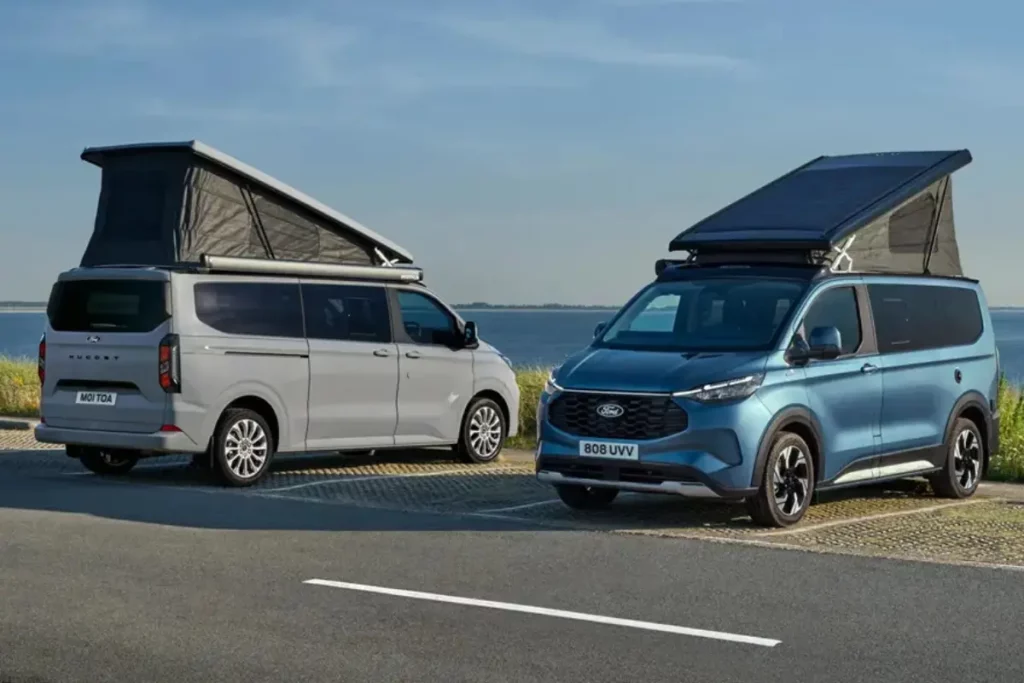
Ultimately, doing your own Transit Custom conversion is a bit like doing a big DIY home renovation. If you have the skills (or the will to learn), the time, and you enjoy that kind of work, it can be incredibly rewarding.
You’ll come out the other end with not just a campervan, but also a load of new skills and a few good stories to tell.
I’ve met folks at camp sites who proudly show off some ingenious solution they handcrafted in their self-built camper – it’s part of the fun and the vanlife community loves that stuff.
My biggest recommendation is to go in with realistic expectations: it will take longer and probably cost more than you initially think, and there will be frustrations along the way. But if you’ve got the passion for it, don’t let me or anyone stop you from giving it a go.
But, if you’re reading this thinking “Blimey, that sounds like a lot of work,” then in my opinion it probably time to consider the other route: getting a professional to do the heavy lifting. So, what’s that like? Let’s explore.
The Professional Route: What to Expect from a Campervan Conversion Company
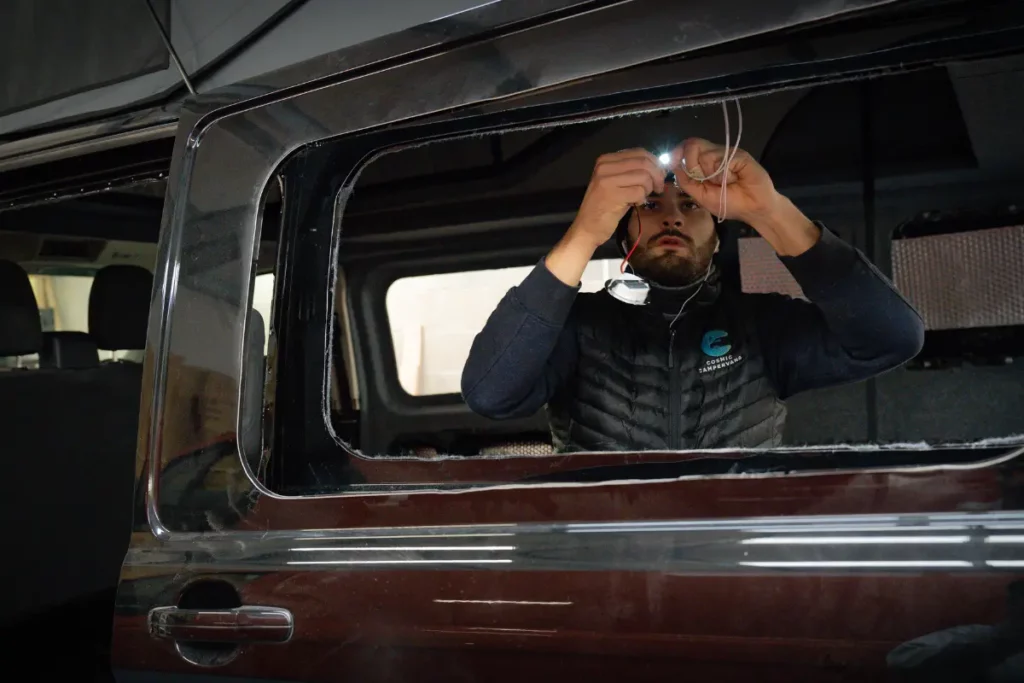
Maybe you’re not the DIY type, or you simply don’t have the time to convert a van yourself – no shame in that! That’s where companies like mine come in.
Opting for a professional campervan conversion basically means handing your beloved van over to experts who will turn it into your dream camper, while you sit back and relax (or more likely, eagerly await updates like an expectant parent).
Let me walk you through what it’s like to work with a conversion company, and why many Transit Custom owners decide this is the best path for them.
Pros of a professional conversion
We’ll help you design it
At Cosmic Campervans, the conversion process usually starts with a chat about your vision. Don’t worry if you’re not sure exactly what you want – part of our job is to help figure that out.
I’ll ask questions like: How do you plan on using the campervan? Weekend getaways, full-time vanlife, family holidays, surfing trips? Do you need to seat four people for travel or is it just for a solo adventurer? Any “must-haves” in your dream build (like space for bikes, off-grid power setup, etc.)?
This is the fun part – we basically brainstorm your perfect Transit Custom camper. I often have people bring in Pinterest photos or scribbled sketches on notepads. We then work together to map out a layout and list of features that tick the boxes.
Because the Transit Custom isn’t huge, we’ll also advise on what’s feasible. For instance, if you want a fixed bed and a shower and four seats in a SWB Transit, we might gently guide you towards a more realistic plan (it’s a van, not a motorhome!!).
My team and I work with these vans everyday, so part of the service we offer is helping you design a camper that works for your circumstances. We know what works and what doesn’t, and we’ll tell you all about it!
This design phase ensures that by the time we actually start the build, we have a clear plan that you’re excited about.
Clear timeplan and a quick turnaround
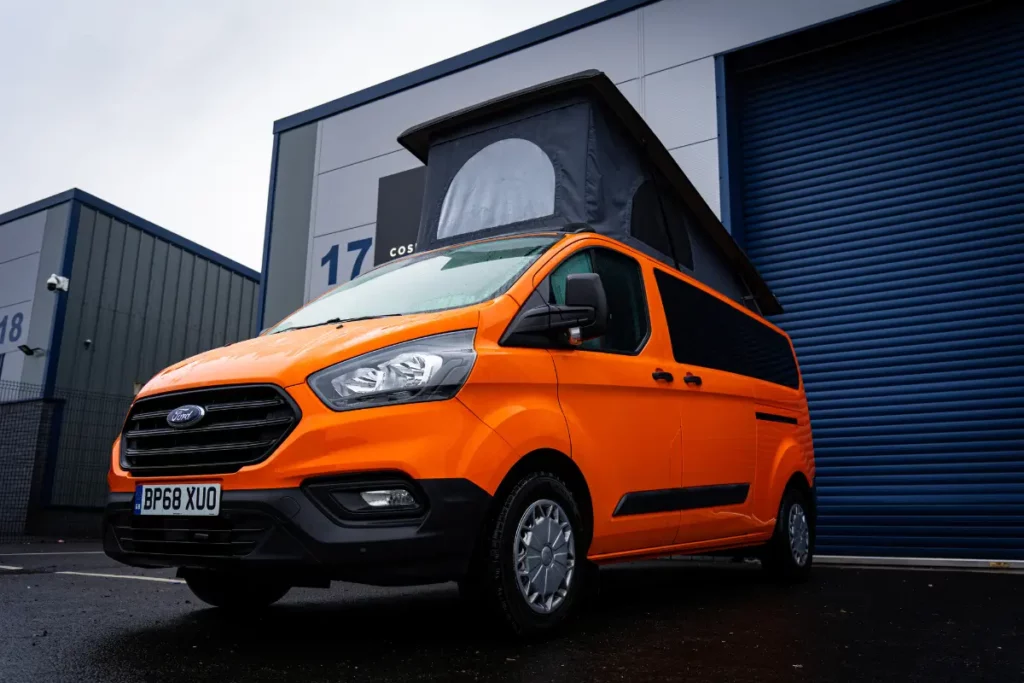
Another plus of opting for a professional conversion is speed. What might take you months of spare-time work, we do in a matter of weeks, because we’re working on it every day with a skilled team.
A full Transit Custom camper conversion with us typically takes several weeks, depending on complexity and time of year – usually in the range of 4-8 weeks from start to finish.
High quality craftsmanship
One big advantage of a professional conversion in my opinion is the quality of work you’re getting. Now, I’m not saying a DIY build can’t be high quality – many are – but with professionals, you’re essentially getting people who do this every day and have mastered their craft.
Everything fits perfectly, the edges of cut panels are clean, the cabinets align just so, and all systems have proper switches and labels. There’s a level of polish that comes from having a team of specialists on the job.
For example, our carpenters know how to build camper furniture that’s not only snugly fitted and beautiful, but also lightweight and robust (important in a moving vehicle).
Our electricians ensure all circuits are safe, neatly routed, and properly fused, and that you have a charging system that won’t leave your leisure battery dead after a day.
We install dedicated 12V and 240V systems to UK standards, meaning you can safely hook up at a campsite or run off-grid with an inverter, etc. We also make sure that gas installations (if any) are certified.
Essentially, you get peace of mind that everything is done safely and correctly. We’ve learned all the little tricks to avoid squeaks and rattles, to maximise insulation, and to make things user-friendly.
A lot of this comes only with experience – after converting so many vans, you learn what works best.
Dreaming of More Space in Your Van?
Upgrade your campervan with a Pop-Top Roof for extra sleeping space and extra head height.
Customisation without the hassle
Some people worry that if they go pro, they might lose that personal touch or end up with a cookie-cutter design. That might be true with some mass-production conversion companies, but as a bespoke converter, I can assure you that your input is gold.
We customise each build to the customer’s taste. You get to choose colours, materials, fabrics, and finishes (we’ll show you samples – this is where many of our customers get as giddy as kids in a sweet shop, picking out cabinet laminates and flooring styles).
If you want a particular type of upholstery or a unique accessory, we do our best to source it or build it.
Honestly, helping clients design their dream camper is one of my favourite parts of the job. By the end, the campervan truly reflects you – it just happens to be executed by us.
A great example is one client who loved cooking; when we did his Transit Custom, we designed a slightly extended kitchen counter and installed a slide-out outdoor cooking station for BBQs.
These touches are absolutely possible when working with professionals who embrace custom work.
A finished conversion, ready to use straight away
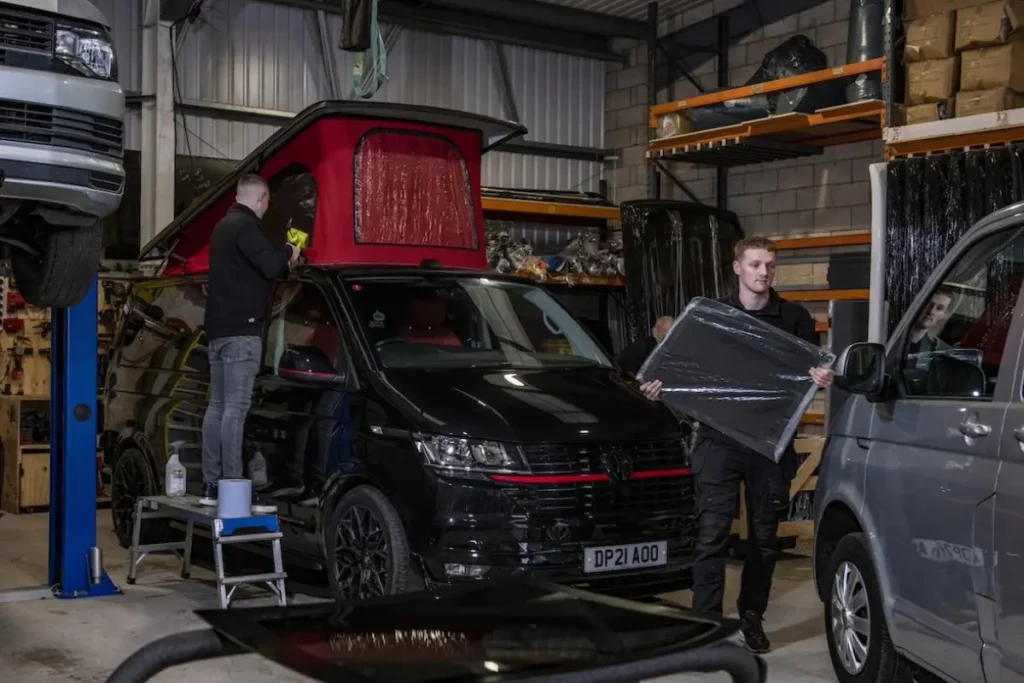
When you step into your van after a pro conversion, the idea is that everything is ready to use. The value is in the enjoyment and lack of hassle.
Lights? They turn on at the flick of a switch (and won’t flicker). The fridge is running cold. The water pump is primed for your sink. The bed cushions are upholstered and inviting.
You won’t have a to-do list of “I’ll finish that bit later” – it’s done. And if you have any questions on how something works, we walk you through it during handover.
I love seeing the huge grin on people’s faces on collection day – one of my recent clients literally did a happy dance in our car park when she saw her finished Transit Custom camper for the first time!
Long-term resale value
Let’s talk value, both monetary and personal. Financially, a professionally converted camper can have excellent resale value.
Ford Transit Custom campers are in high demand, and buyers often pay a premium for a van that’s been converted by a known company with a good reputation.
It just gives that extra confidence that the electrics aren’t going to set fire or the cabinets won’t fall apart on the first speed bump. We provide documentation of the build and any certifications which are useful for insurance and resale.
What about partial conversions?
You might be thinking, maybe I can have a bit of both worlds. Absolutely! Many conversion companies (ours included) offer flexible services.
For example, a lot of clients come to us for what we call a ‘stage 1’ conversion. They have the pros do the tricky, critical stuff – fitting windows, the pop-top roof, wiring the electrical system, installing the carpet lining and maybe plumbing.
Then, you take over and do the interior furniture and finishings yourself. This “hybrid” approach means you know the foundation is solid and safe, but you save a bit of money and still get the satisfaction of doing part of it.
I recommend this part-conversion who is nervous about the big projects but keen to take on smaller, less risky stuff like fitting cabinetry. Don’t think it’s strictly all or nothing – there’s flexibility to tailor the service to your needs.
Working with a professional conversion company is all about making the journey to your dream camper smoother and less stressful. You still get plenty of input and the end result is truly yours, but you have a knowledgeable team to handle the labour and technical bits.
Essentially, you’re trading money for time and expertise. For many, that trade-off is well worth it. For others, the challenge of DIY is part of the adventure. So, let’s see how you can decide which route suits you best.
Should You Go DIY or Pro? Here’s How to Decide
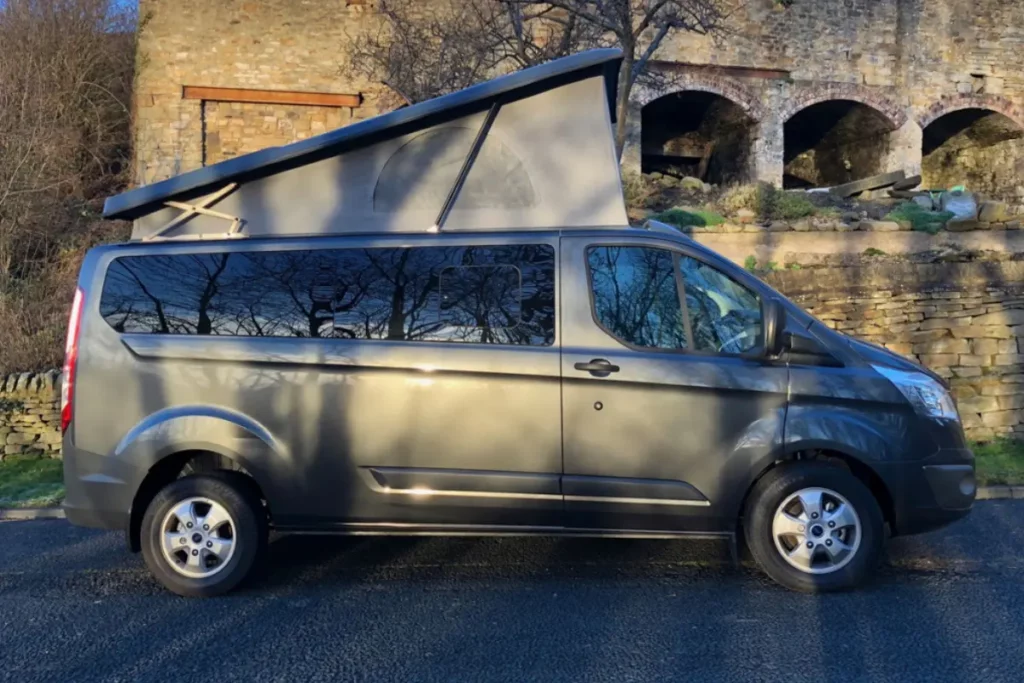
By now, you’ve probably guessed there’s no one-size-fits-all answer. Some people thrive on the challenge of a DIY camper conversion, while others try it, hit a wall, and say, “Never again!”
Here’s how I’d suggest figuring out what’s best for you.
Start by thinking about your skills. If you’re handy or enjoy learning new things (like wiring, carpentry, or plumbing), DIY could be a rewarding journey. But if that sounds more like a headache than a hobby, then going pro might save your sanity.
Time’s another biggie. DIY conversions always take longer than you think – life gets in the way. If you’ve got a road trip coming up or want to be camping by summer, a professional conversion is your best bet.
Then, there’s budget. DIY can save you money upfront – if you’re resourceful – but it also comes with hidden costs and potential mistakes. A pro conversion costs more, but you get quality, safety, and something ready to roll. Long-term, it might even add more value if you ever sell the van.
And finally – do you actually want the project? Some folks love getting stuck in. Others would rather be out exploring the Peak District than spending every weekend with a jigsaw in the garage.
There’s no wrong choice – you can even go halfway and have us handle the trickier bits while you do the rest.
If you ever need advice – or a hand – I’m just down the road in Derby. Always happy to help a fellow van lover. And if you’re interested in learning more about the best Ford Transit model for a camper conversion, check out my blog!

